 Erectile Dysfunction: Symptoms, Causes, and Support Strategies
Erectile Dysfunction: Symptoms, Causes, and Support Strategies
Erectile dysfunction means that a man is unable to get or keep an erection. It is a much more common issue than you would think. According to a 2012 research published in Current Opinion in Nephrology and Hypertension, erectile dysfunction affects about 30 million men in the United States (1). That’s about 30 percent of men in the US alone. As not all cases are reported, this number may be higher.
Erectile dysfunction can be a frustrating issue that may cause serious emotional, self-esteem, or relationship issues and great stress. It may also be a sign of an underlying health issue. The good news is that once you understand the root causes of erectile dysfunction, you can improve your health and sex life with some natural strategies.
In this article, you will learn what erectile dysfunction is. You will learn about its symptoms and risk factors. I will go over the major risk factors for erectile dysfunction. You will learn about the root causes of erectile dysfunction. I will also share some natural strategies for erectile dysfunction to improve your health.
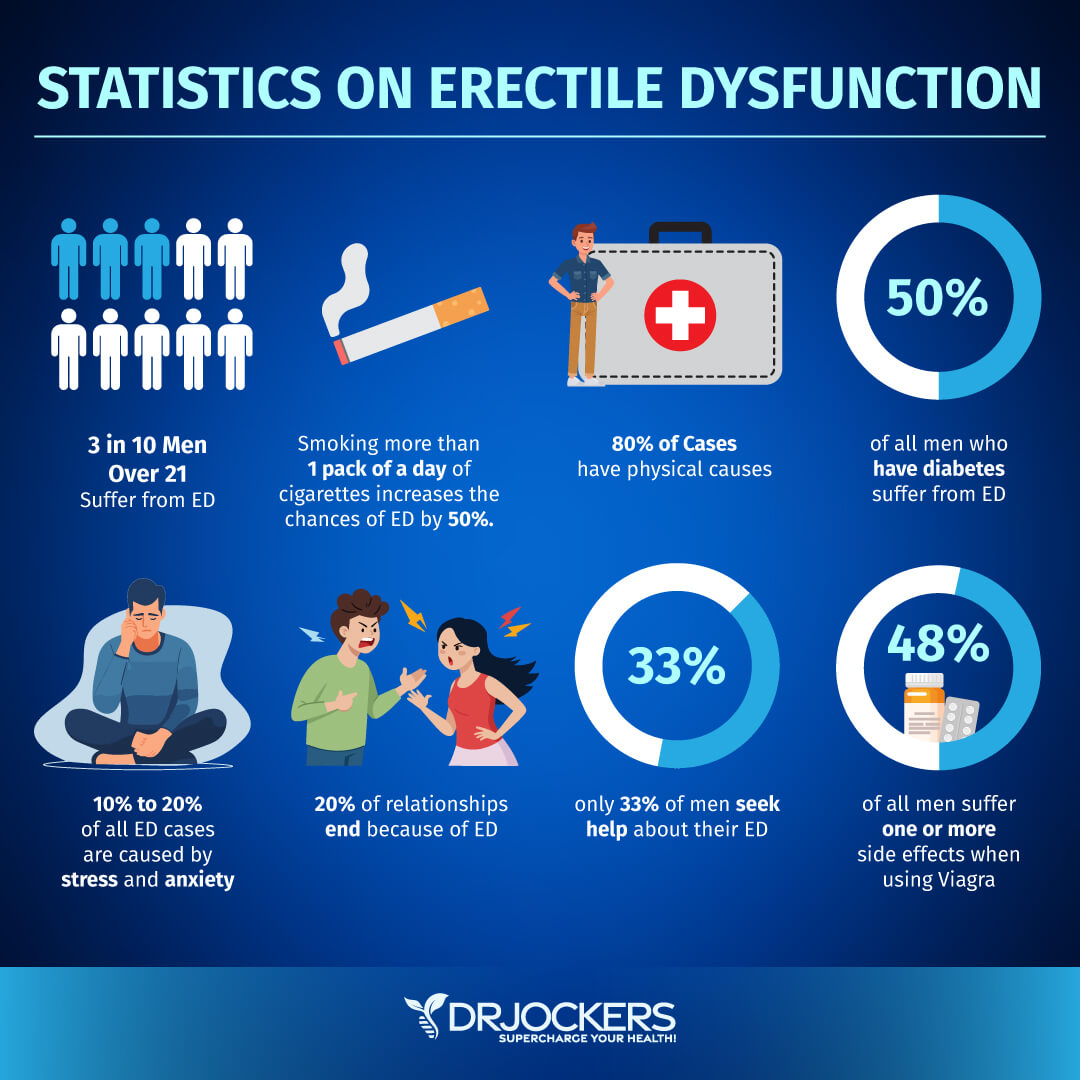
What is Erectile Dysfunction
Erectile dysfunction (ED) is also called impotence, though this term is used less frequently. It refers to an inability to get or keep an erection that’s firm enough for sexual intercourse. Many men experience occasional erectile dysfunction, especially during stressful times. This is nothing to worry about.
However, frequent erectile dysfunction can be concerning. It may be a sign of some underlying health issues that need attention. It may also be due to emotional or relationship problems. Frequent erectile dysfunction can have a serious impact on a man’s confidence, emotional health, and relationship.
Erectile dysfunction may develop due to issues during any stage of the erection process. So what is an erection? Men get an erection due to an increased blood flow to the penis that may happen because of direct physical contact with the penis or sexual thoughts or otherwise intimate connections.
Sexual excitement leads to relaxation of the muscles of the penis. As a result, the blood flow in the penile arteries increases, filling the two chambers of the penis with blood and leading to a firm erection. When the muscle contracts and the blood flow reduces, the erection will end. Some men have problems getting an erection at all. Others struggle to keep it, due to various issues (1, 2).

Major Symptoms of Erectile Dysfunction
Erectile dysfunction means that a man is unable to get or keep an erection. However, this doesn’t mean that every man with erectile dysfunction experiences issues every time they try to have sex. Symptoms may vary from person to person.
Symptoms of erectile dysfunction may include:
- Having difficulty getting or keeping an erection sometimes, but being able to get an erection at other times you want to have sex
- Being able to get an erection, but being unable to keep an erection long enough to have or last through sex
- Being unable to get an erection at all
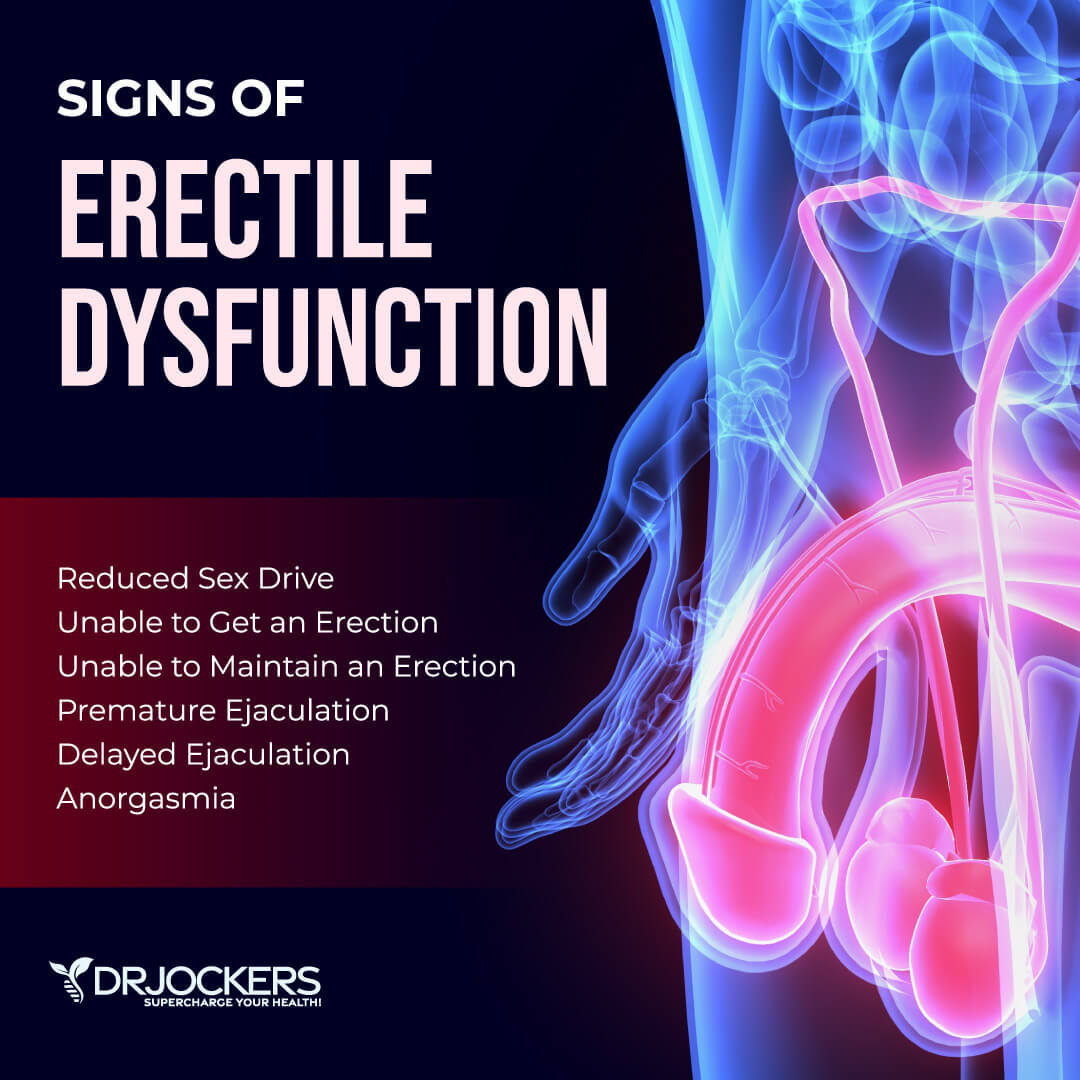
Risk Factors for Erectile Dysfunction
You may develop erectile dysfunction at any age. Various factors may increase your risk for erectile dysfunction, including (1).:
- Certain chronic health conditions, including type 2 diabetes, atherosclerosis, heart and blood vessel disease, high blood pressure, multiple sclerosis (MS), chronic kidney disease, Peyronie’s disease, urological problems, surgery for bladder cancer, injury to the penis, spinal cord, pelvis, bladder, or prostate, and injury from radiation for prostate cancer or prostate surgery
- Side effects of certain medications, including antidepressants, tranquilizers, sedatives, blood pressure medication, ulcer medication, appetite suppressants, and antiandrogens for prostate cancer
- Emotional and psychological issues, including fear of sexual failure, guilt related to sexual activities or performance, stress related to sex, general stress, anxiety, depression, or low self-esteem
- Other health or lifestyle-related factors, include being overweight or obese, smoking, drinking too much alcohol, illegal drug use, and a sedentary lifestyle. Additionally, the overuse of pornography and masturbation can lead to erectile dysfunction as well.
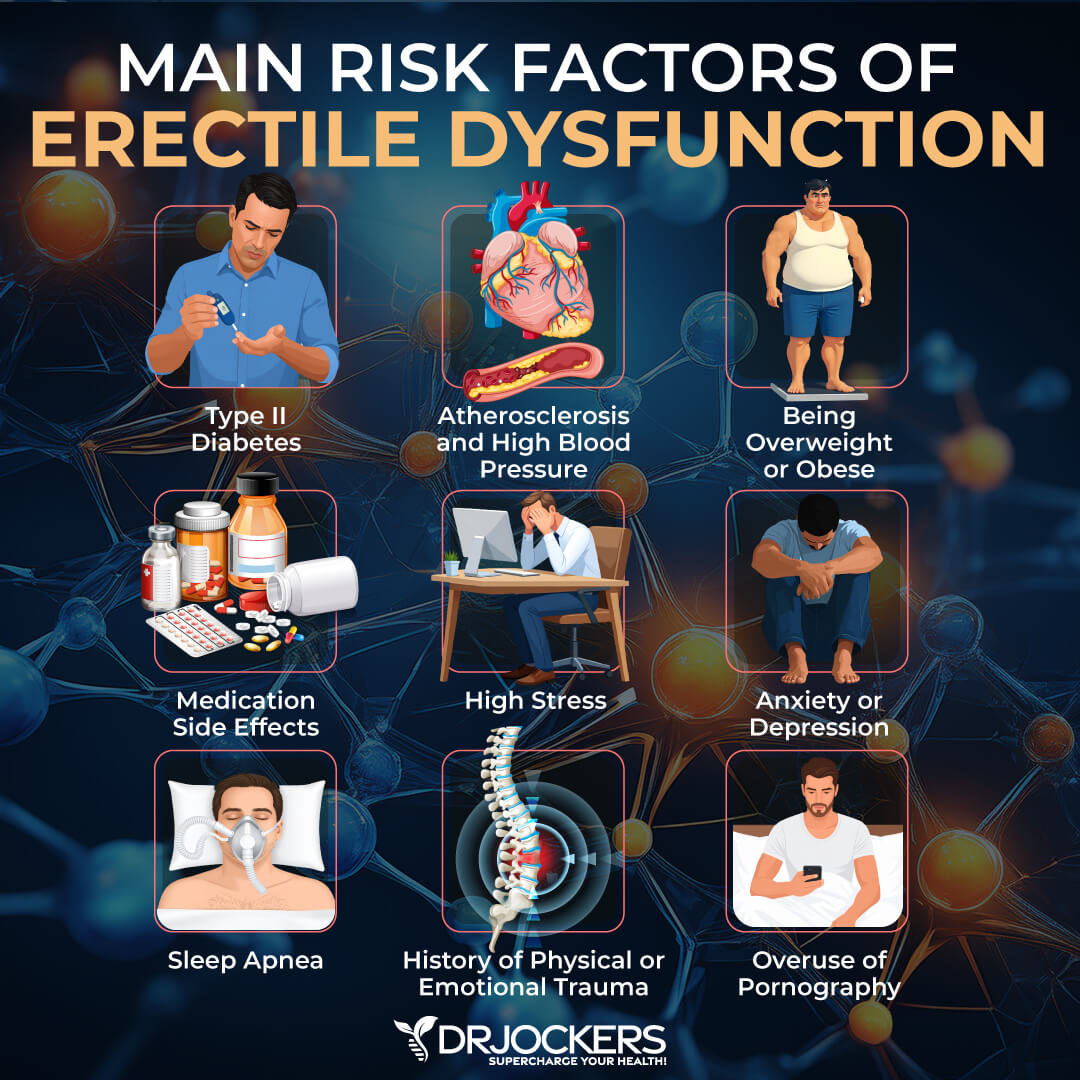
The Cell Danger Response and Low Libido
In functional medicine circles, there is a lot of talk about the cell danger response (CDR). A 2013 review published in Mitochondrion has described the CDR as a critical evolutionarily conserved metabolic response that is part of your body’s innate defense system (48). It protects your cells from cellular threat, danger, and harm. It doesn’t matter if the threat is physical, biological, or chemical. If it goes beyond your cell’s natural capacity to ensure homeostasis, it triggers a CDR.
Your body is a complex system of individual cells that work together to form tissues, organs, and other systems in your body. Each of your cells has several components, and the most important component of each cell is the mitochondria. Your mitochondria are responsible for creating energy from the food you eat to fuel and energize your cells, tissues, and organs.
Your mitochondria are critical for energy, function, and health. The mitochondria also act as energy sensors and cellular defense agents with one goal in mind: homeostasis or cellular balance. If there is a significant drop in this energy and there isn’t enough energy to meet the minimum requirement for homeostasis, your mitochondria will recognize this energy drop as a threat to your health and balance. Stress, past trauma, infections, and other health issues are common sources of threat or perceived threat that threaten homeostasis.
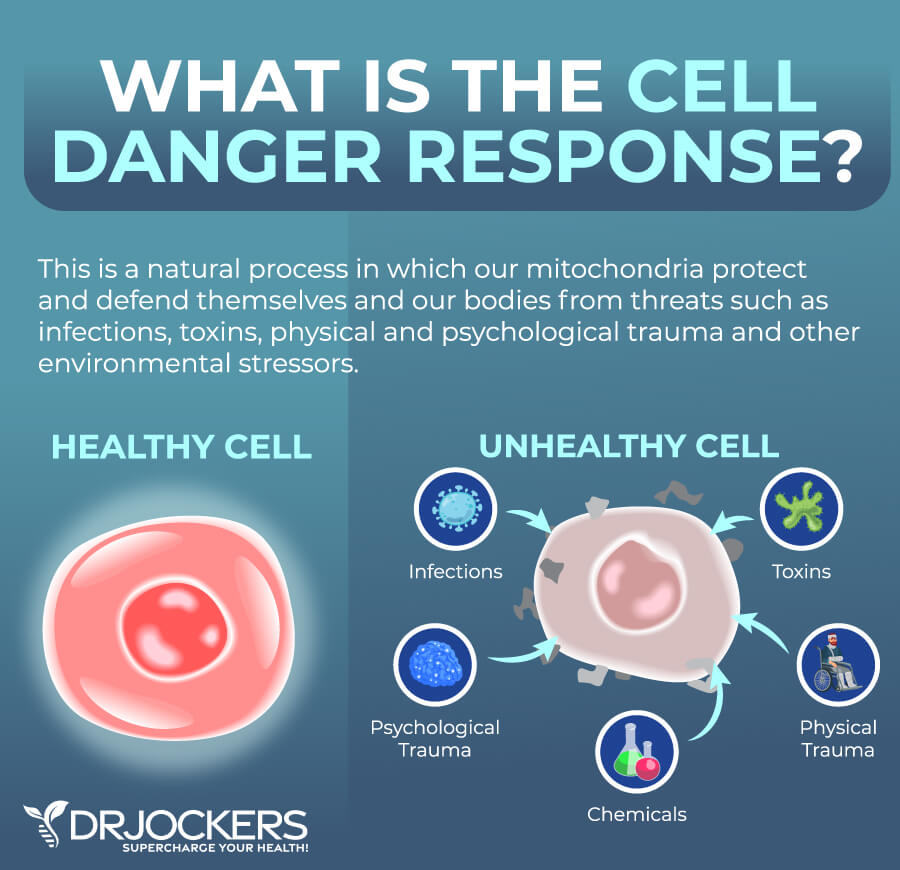
Any threat to cellular balance will force your mitochondria to change their primary function. Instead of energy production and optimal cell metabolism, it will now focus on cellular defense. This is a major shift in cellular physiology. CDR refers to this switch from energy production and cell metabolism to cellular defense. You can learn more about the CDR by reading this article.
Not surprisingly, at the time of cellular defense, which is essentially a war inside your body, there is no room for sexual function. Past trauma, stress, infections, and other factors can activate CDR and lead to a lowered cellular metabolic state and low libido. As I will go over some details later, reducing unnecessary CDR by keeping your physical and mental health balanced is necessary to keep your libido at a healthy level.
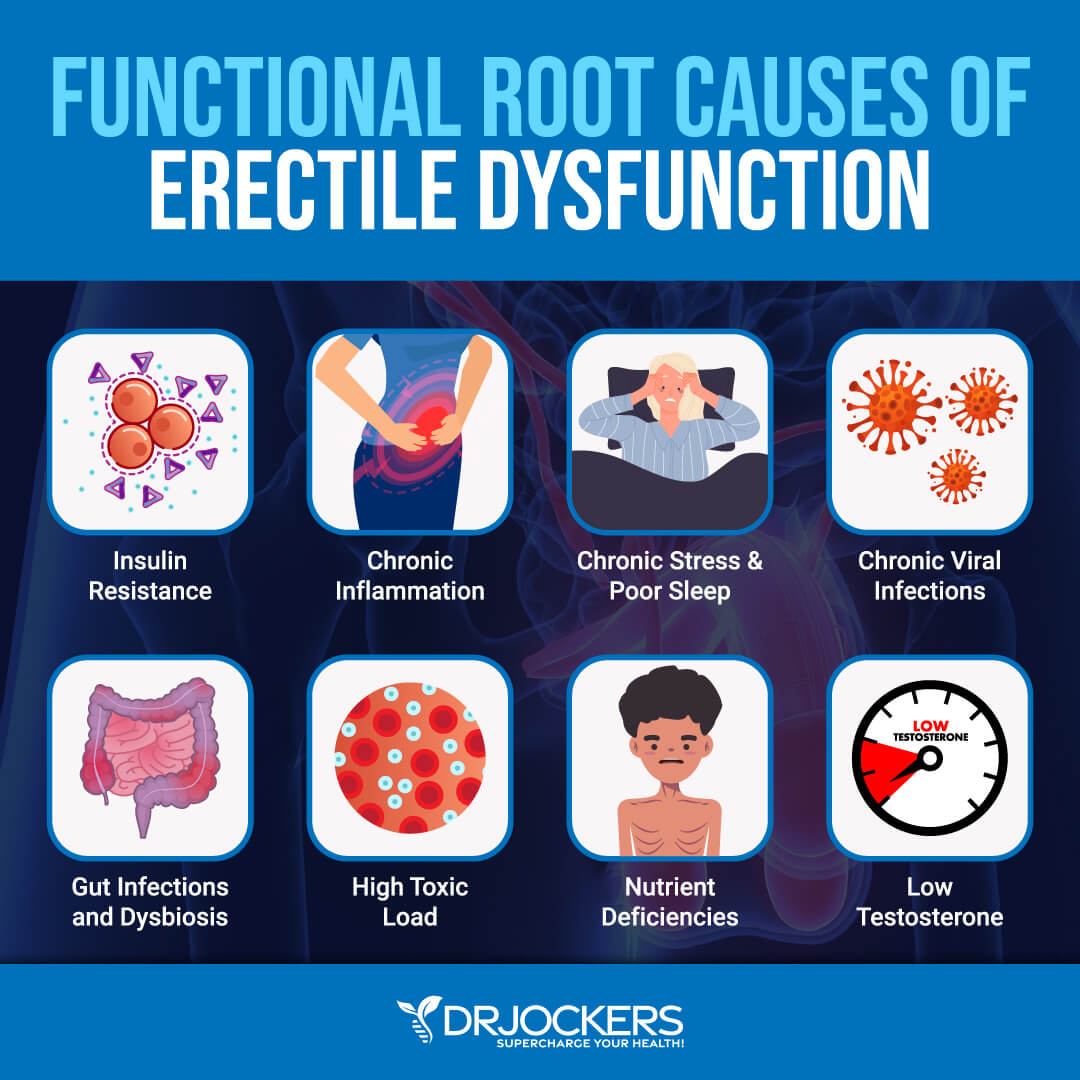
Root Causes of Erectile Dysfunction
There are certain health factors that may play a role in the development of erectile dysfunction. Here are the major root causes of erectile dysfunction:
Insulin Resistance
Insulin resistance means that your body is unable to respond to insulin well and unable to use blood sugar for energy effectively. Insulin resistance may increase the risk of prediabetes and type 2 diabetes. It may also increase the risk of various other health issues, including erectile dysfunction. A 2013 study published in Clinical Research in Cardiology has found that erectile dysfunction may be one of the first signs of insulin resistance (4).
A 2013 study published in PLoS One has found that insulin resistance may increase the risk of erectile dysfunction (5). A 2016 study published in the International Journal of Impotence Research has found that insulin resistance and erectile dysfunction may increase the risk of cardiovascular issues (6). A 2016 review published in the Korean Journal of Internal Medicine has found that insulin resistance may be linked to erectile dysfunction (7).
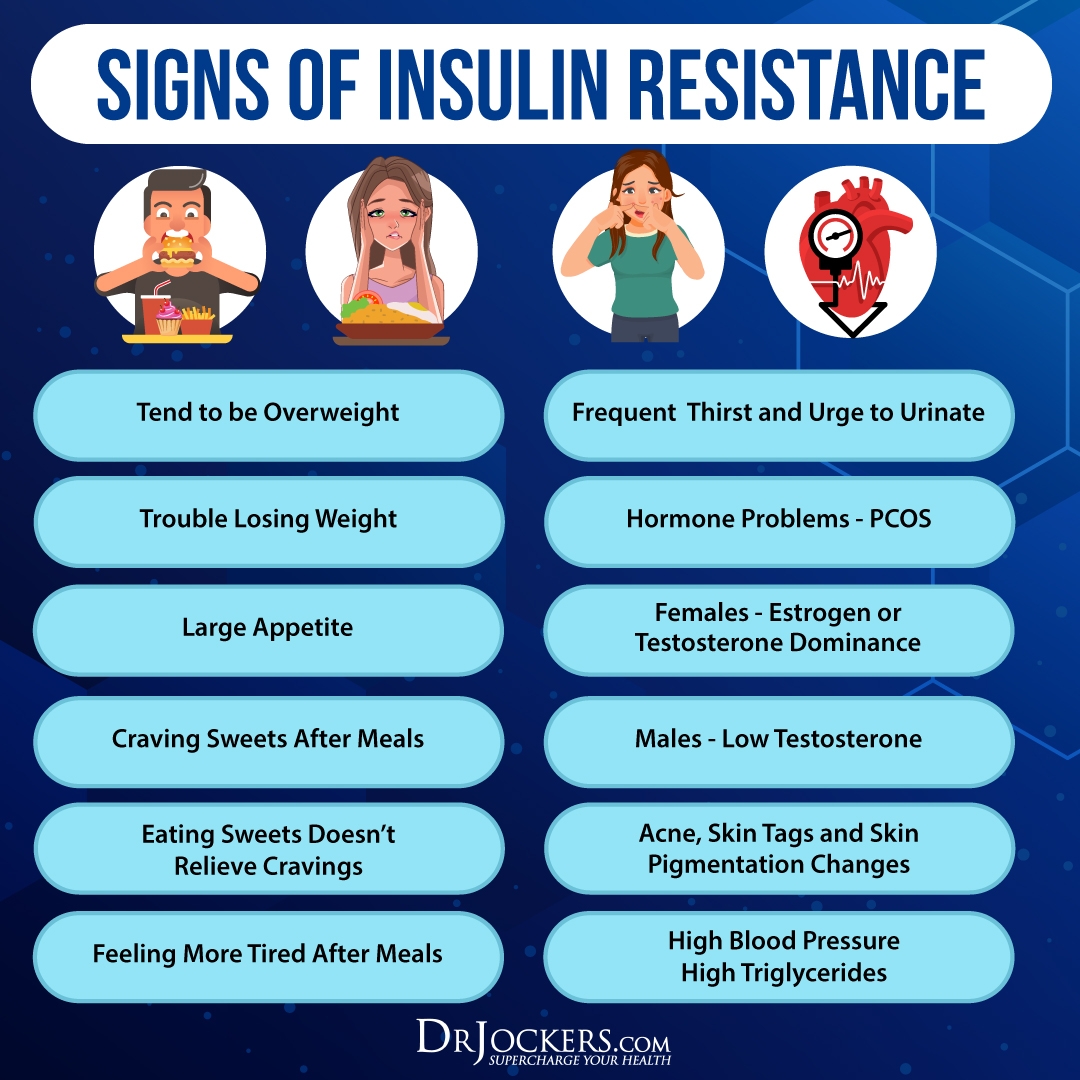
Chronic Inflammation
Chronic inflammation is the underlying root cause of most chronic health issues, including erectile dysfunction. When it comes to erectile dysfunction, it’s important to mention cardiovascular inflammation. Since erections depend on healthy blood flow, erectile dysfunction may be an early sign of cardiovascular inflammation and cardiovascular health issues.
A 2006 study published in the European Heart Journal found that inflammation is a major issue in those with erectile dysfunction (8). This seems to hold true for those with and without coronary artery disease.
A 2013 systematic review has also found a link between erectile dysfunction, cardiovascular inflammation, and cardiovascular disease (9). It’s not surprising that according to a 2020 review published in Current Pharmaceutical Design, addressing underlying inflammation is a critical part of addressing erectile dysfunction (10).
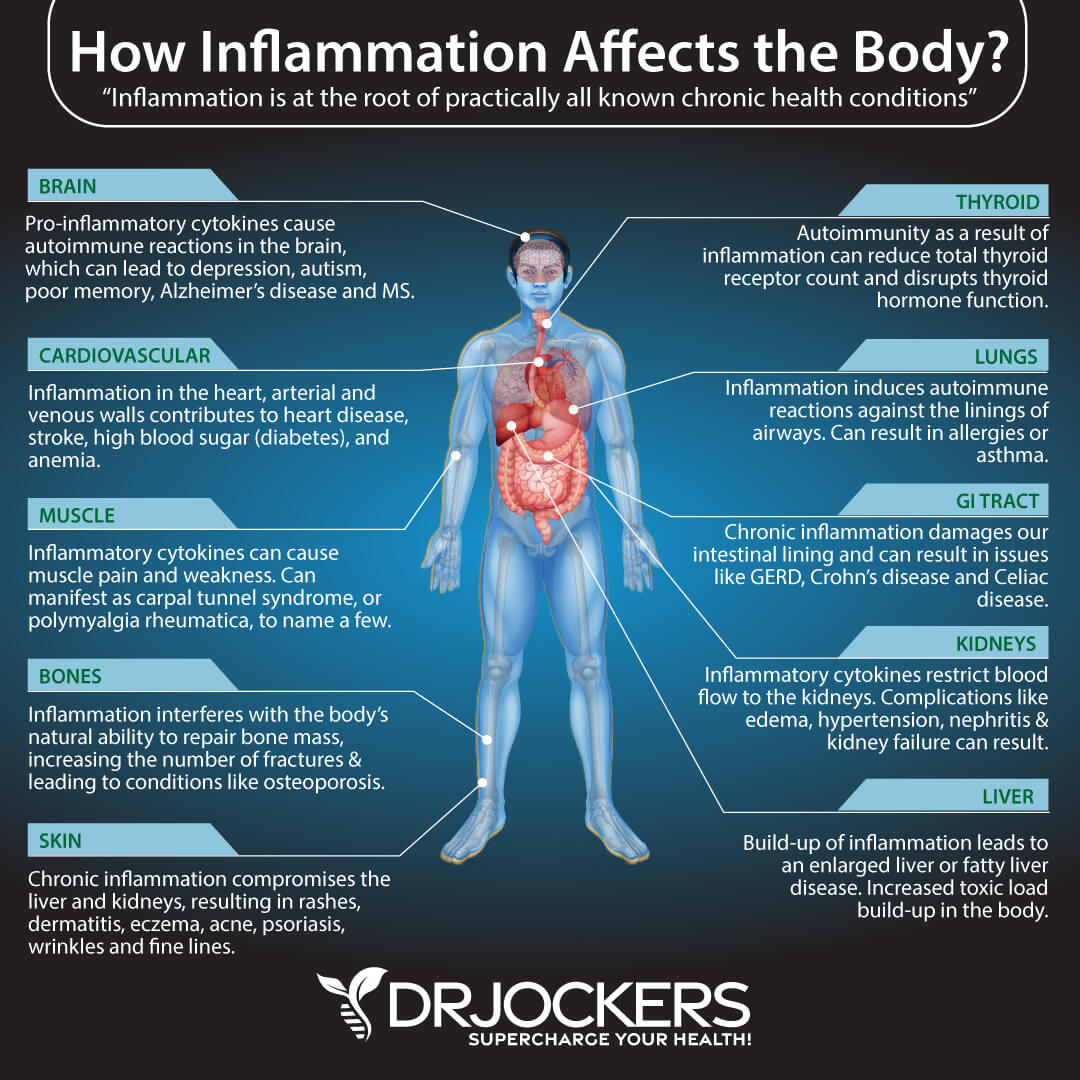
Chronic Stress & Poor Sleep
As you learned earlier, stress and other emotional issues can contribute to erectile dysfunction. However, stress and poor sleep can contribute to erectile dysfunction on an emotional level. Chronic stress can increase sleep issues and poor sleep may lead to chronic stress. They can both increase chronic inflammation and lead to various health issues, including erectile dysfunction (11).
A 2020 cross-sectional study published in the International Journal of Impotence Research has found that work-related stress and burnout may increase sexual problems, including erectile dysfunction. A 2018 study published in PLoS One found that over 50 percent of participants with erectile dysfunction had obstructive sleep apnea (12). A 2019 review published in the World Journal of Men’s Health has found that obstructive sleep apnea may contribute to testosterone deficiency, a risk factor for sexual problems in men (13).
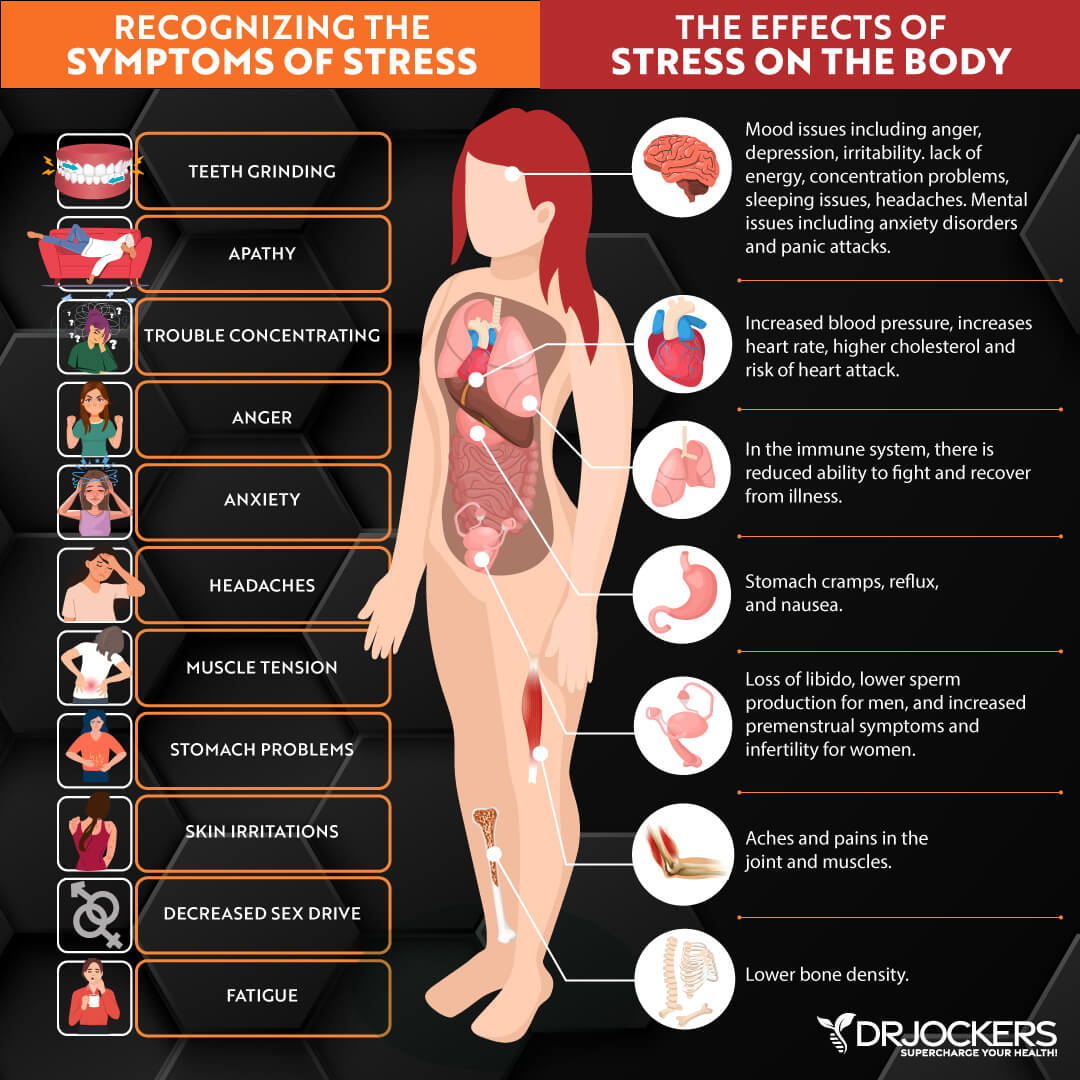
Chronic Viral Infections
Chronic viral infections may increase chronic inflammation and chronic health issues, including erectile dysfunction. Chronic viral infections that may contribute to erectile dysfunction may be of all kinds, including some sexually transmitted and respiratory infections.
A 2013 review published in Expert Opinions in Pharmacotherapy has found that viral hepatitis may increase the risk of erectile dysfunction (14). A 2013 population-based study published in Andrology has found that a herpes simplex virus infection may be linked to erectile dysfunction, and it may increase the risk of cardiac events (15). A 2021 study published in the World Journal of Men’s Health has found that a COVID-19 infection may also increase the risk of erectile dysfunction (16).
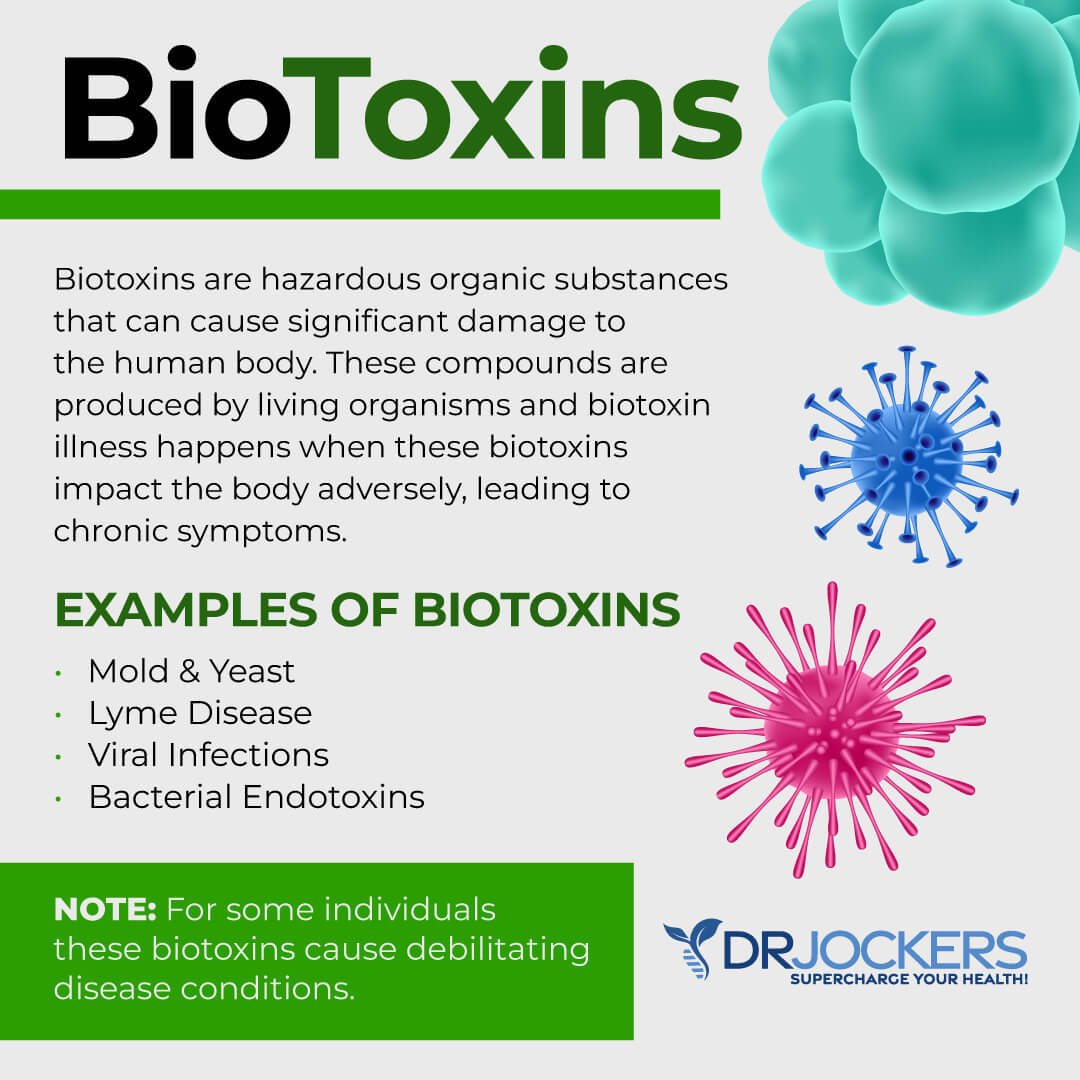
Gut Infections and Dysbiosis
In a healthy body, there is a healthy balance between beneficial and harmful bacteria in your gut microbiome. When there are ongoing gut infections and there are too many harmful bacteria and too few beneficial bacteria in your gut, it causes gut dysbiosis and microbiome imbalance. This may lead to chronic inflammation and various chronic health issues, including erectile dysfunction.
A 2016 population-based study published in Inflammatory Bowel Diseases has found that there may be a link between inflammatory bowel disease (IBD) and erectile dysfunction (17). People with IBDs may be more likely to develop erectile dysfunction than those without.
A 2020 study published in the International Journal of Urology and Nephrology has found a significant link between a poor gut microbiome and erectile dysfunction (18). A 2020 review published in Zhonghua Nan Ke Xue has also identified a poor microbiome as a risk factor for erectile dysfunction (19).
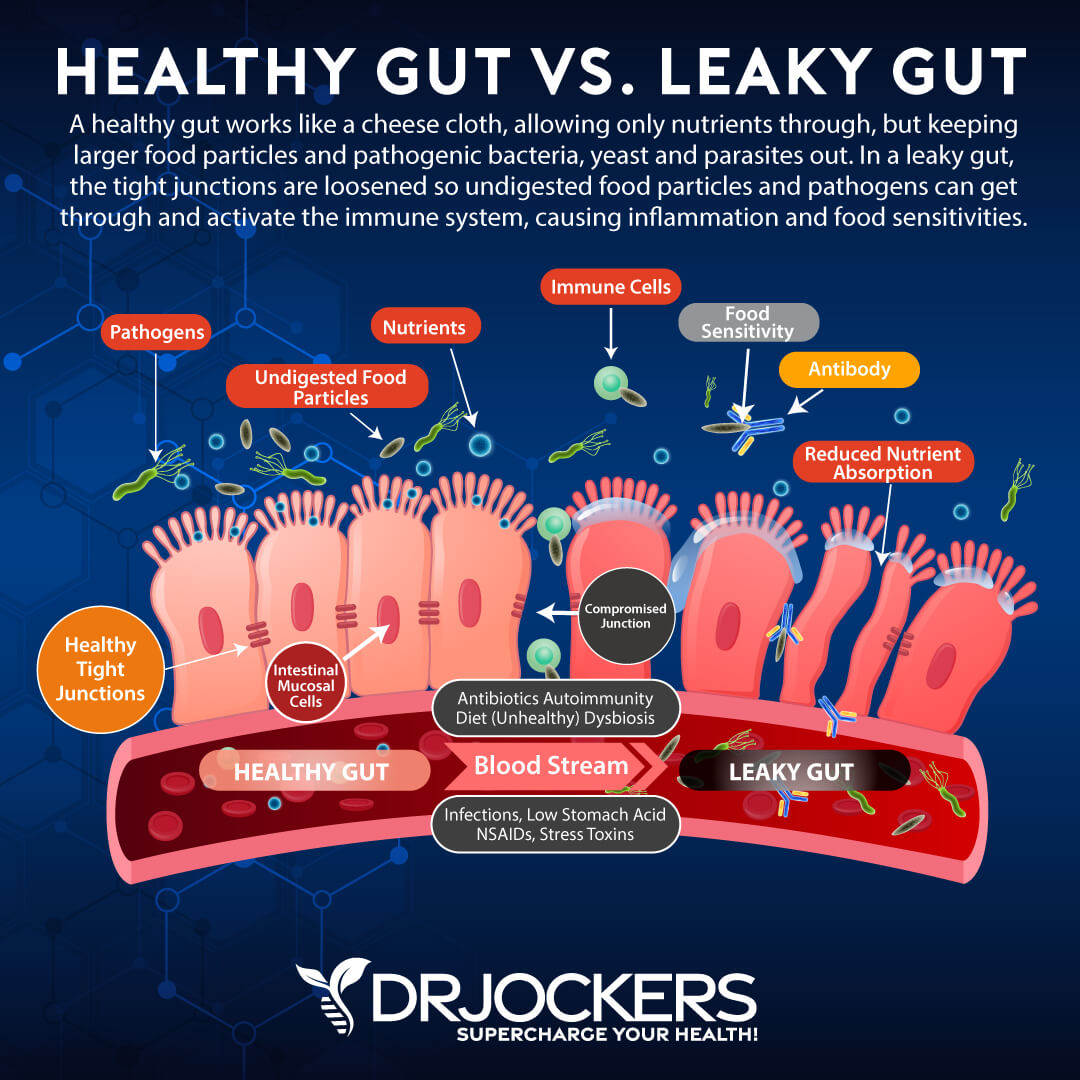
High Toxic Load
Environmental toxins can significantly increase the risk of chronic inflammation, oxidative stress, hormonal issues, and chronic health problems. They may also increase the risk of erectile dysfunction. A 2021 study published in Antioxidants (Basel) has found that environmental toxins, such as air pollution, heavy metals, radiation, pesticides, and endocrine disruptors, may contribute to erectile dysfunction (21).
A 2007 study published in the Journal of Sexual Medicine found that chronic lead exposure may increase the risk of erectile dysfunction (22). A 2018 study published in Zhonghua Liu Xing Bing Xue Za Zi has found that Bisphenol A (BPA) may also increase the risk of erectile dysfunction (23). A 2021 study published in Frontiers in Bioscience has found that cadmium exposure may also increase the risk of erectile dysfunction and male reproductive issues (24).
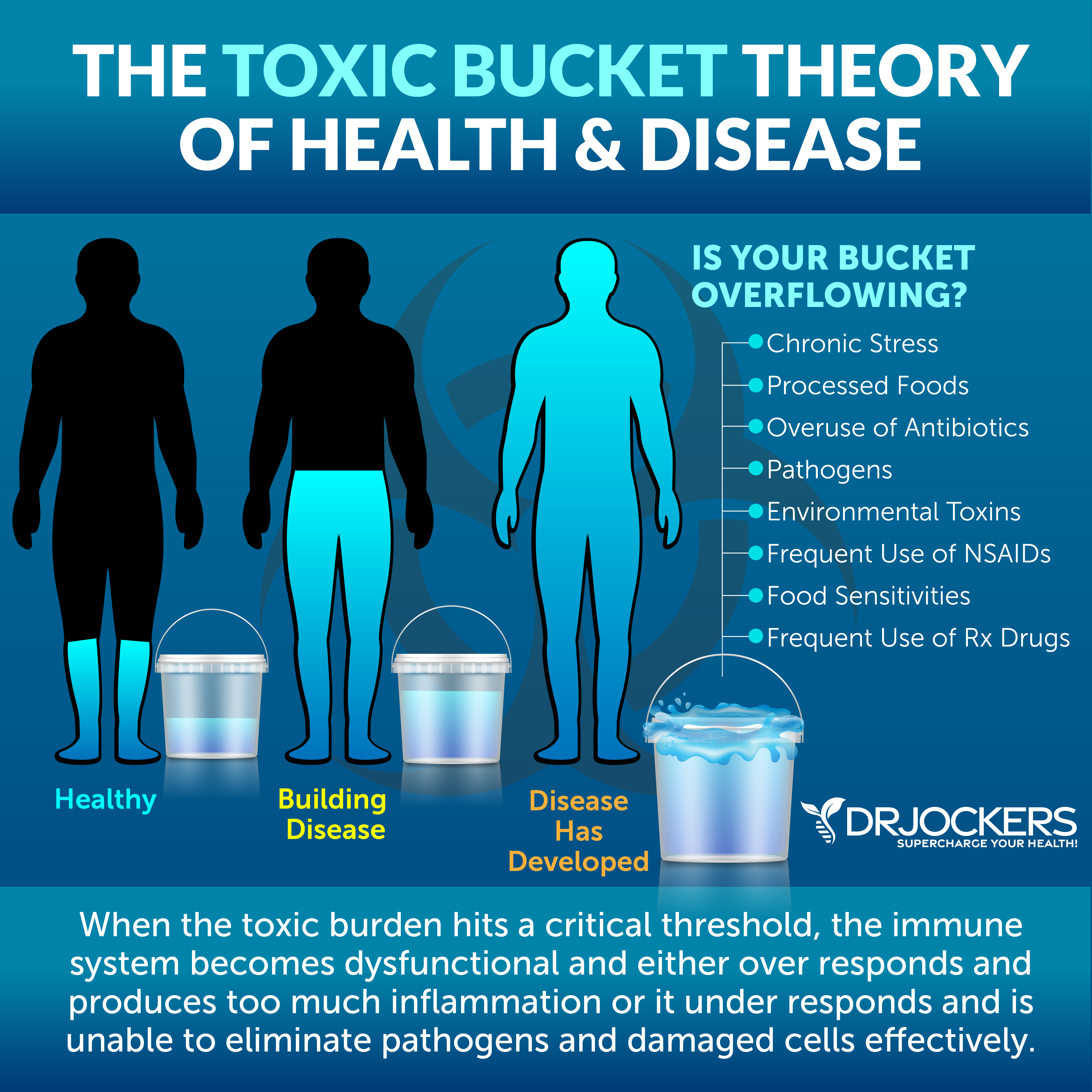
Nutrient Deficiencies
Nutrient deficiencies may also increase the risk of erectile dysfunction, including deficiencies in vitamin D, magnesium, omega-3 fatty acids, B vitamins, and zinc. A 2016 study published in Atherosclerosis has found that vitamin D deficiency may increase the risk of erectile dysfunction (25). A 2020 study published in Nutrients has also found a link between erectile dysfunction and low vitamin D levels (26).
A 2017 study published in Clinical Interventions in Aging has found that magnesium levels may influence erectile dysfunction (27). A 2016 study published in the Korean Journal of Medical Science has found a link between low omega-3 levels and erectile dysfunction (28).
A 2019 study published in BMJ Open has found that deficiency in vitamin B12 and folate may increase the risk of erectile dysfunction (29). A 2009 study published in the Journal of Human Reproductive Science has found that zinc plays an important role in male sexual function and testosterone levels (30). Deficiencies may play a role in erectile dysfunction.
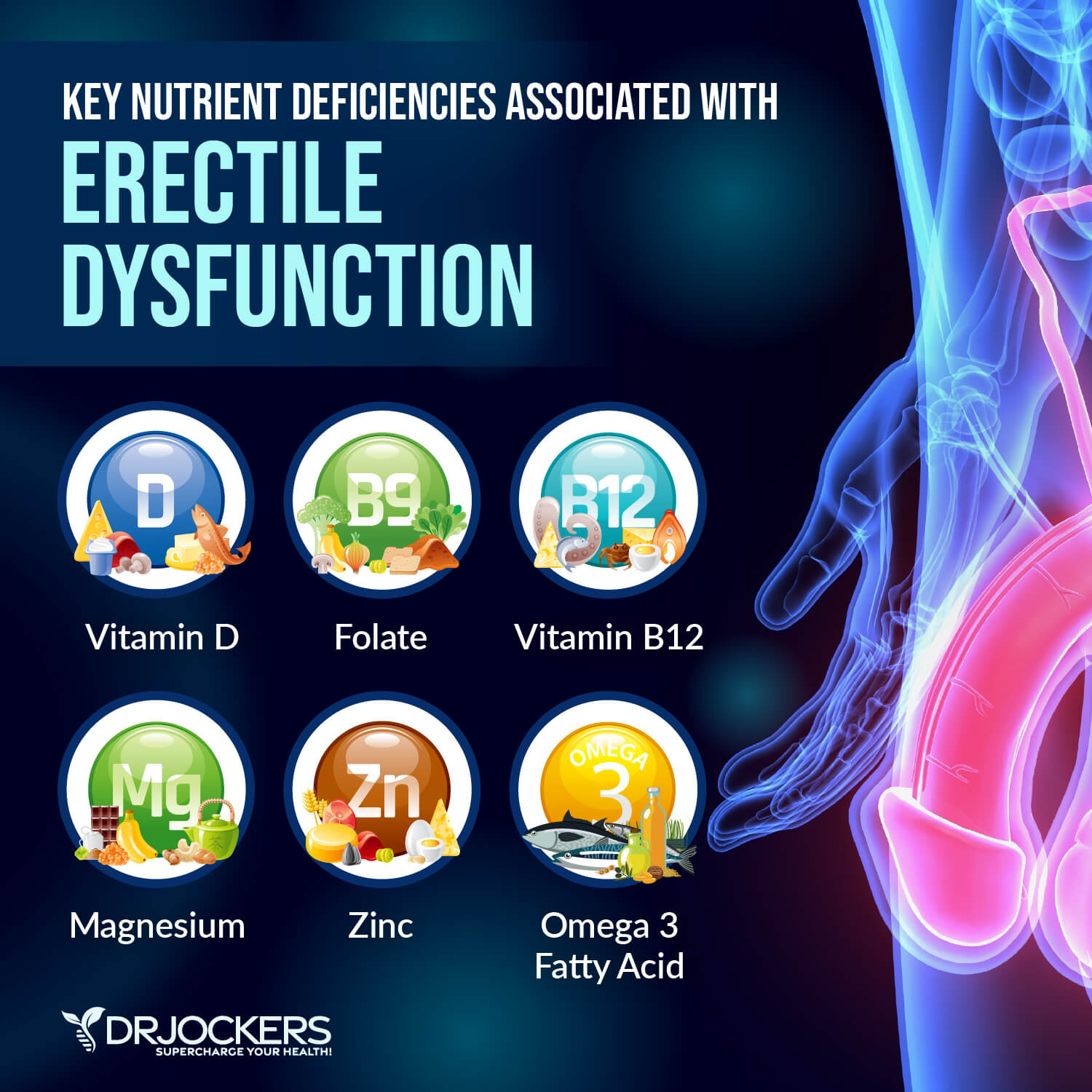
Low Testosterone
Testosterone is the male sex hormone that plays a critical role in male sexual function and reproduction. Not surprisingly, low testosterone levels may contribute to erectile dysfunction. A 2011 study published in the Canadian Journal of Urology found a link between low testosterone and erectile dysfunction (31). A 2014 study published in Andrology has found that erectile dysfunction and low testosterone are common in type 2 diabetes and can impact the quality of life in men (32).
A 2019 study published in the International Journal of Impotence Research found it is not enough to look at the total testosterone level of men (33). One may have normal total testosterone levels but low free testosterone. Researchers found that low free testosterone may be linked to erectile dysfunction even when one has normal total testosterone levels.
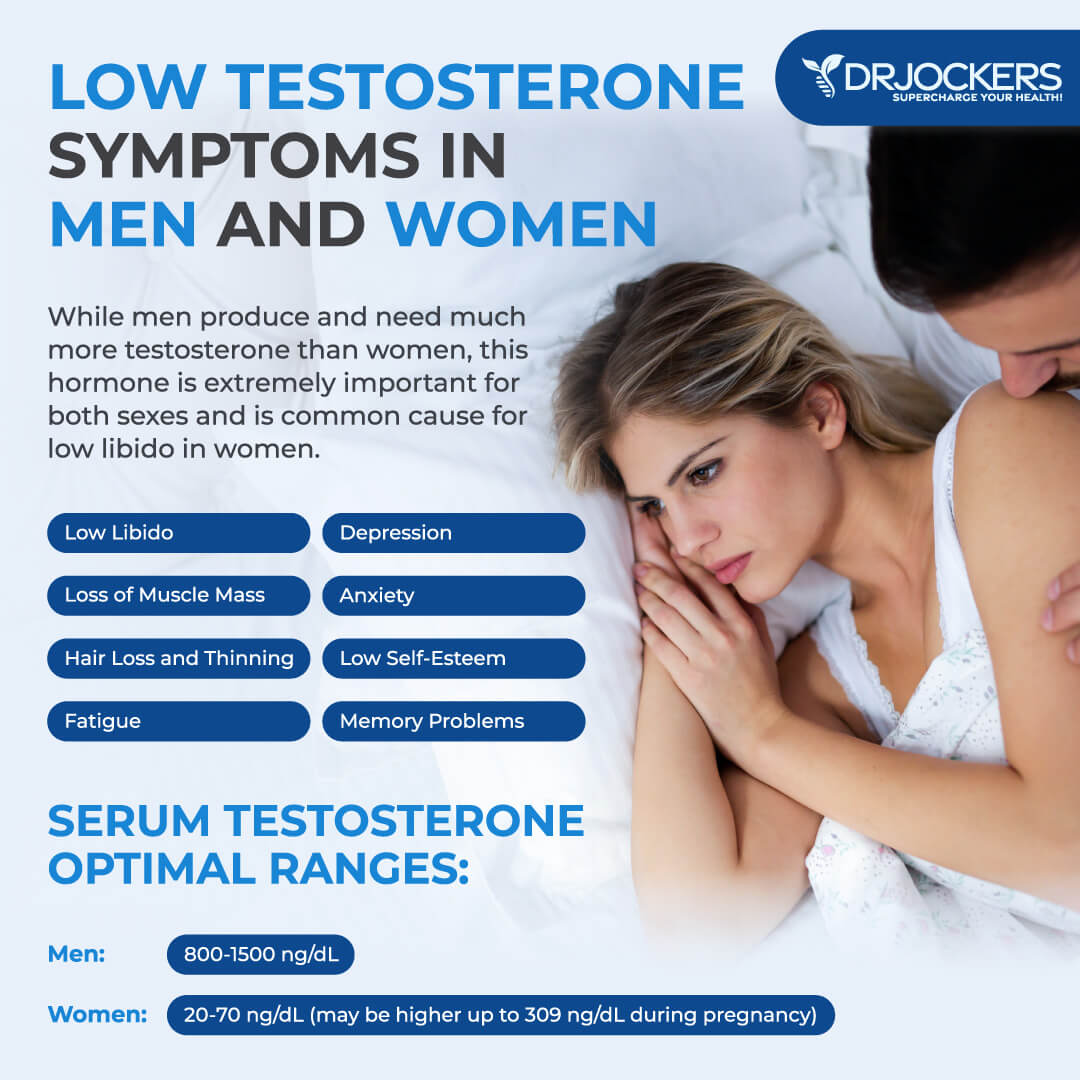
Key Functional Labs to Look At
There are a variety of key functional lab markers we can look at to determine your risk and uncover underlying root causes of erectile dysfunction.
Inflammation
Since chronic inflammation is one of the root causes of erectile dysfunction, I recommend checking for inflammation markers (6). If you want to know more about the top 12 inflammatory lab markers then read this article.
The C-Reactive Protein or CRP test measures a protein (CRP) produced in your liver that indicates inflammation levels in your body. The clinical range is between 0 and 3 mg/L while the optimal range is 0 to 1 mg/L. When I see levels over 1 mg/L, I know the individual is having an inflammatory response that could be due to acute trauma or chronic conditions.
The C-Reactive Protein or CRP test measures a protein (CRP) produced in your liver that indicates inflammation levels in your body. The clinical range is between 0 and 3 mg/L while the optimal range is 0 to 1 mg/L. When I see levels over 1 mg/L, I know the individual is having an inflammatory response that could be due to acute trauma or chronic conditions.
Lactate Dehydrogenase (LDH) is an enzyme found in all living cells. Elevated levels may indicate inflammation. Optimal levels are between 140-180. Levels over 180 indicate inflammation.
Serum ferritin measures the level of ferritin in your body to detect iron deficiency anemia and other health issues. Elevated serum ferritin levels may indicate inflammation, liver disease, autoimmune disease, or even cancer. The clinical range is 30 to 400 and the optimal range is 50 to 150 for males.
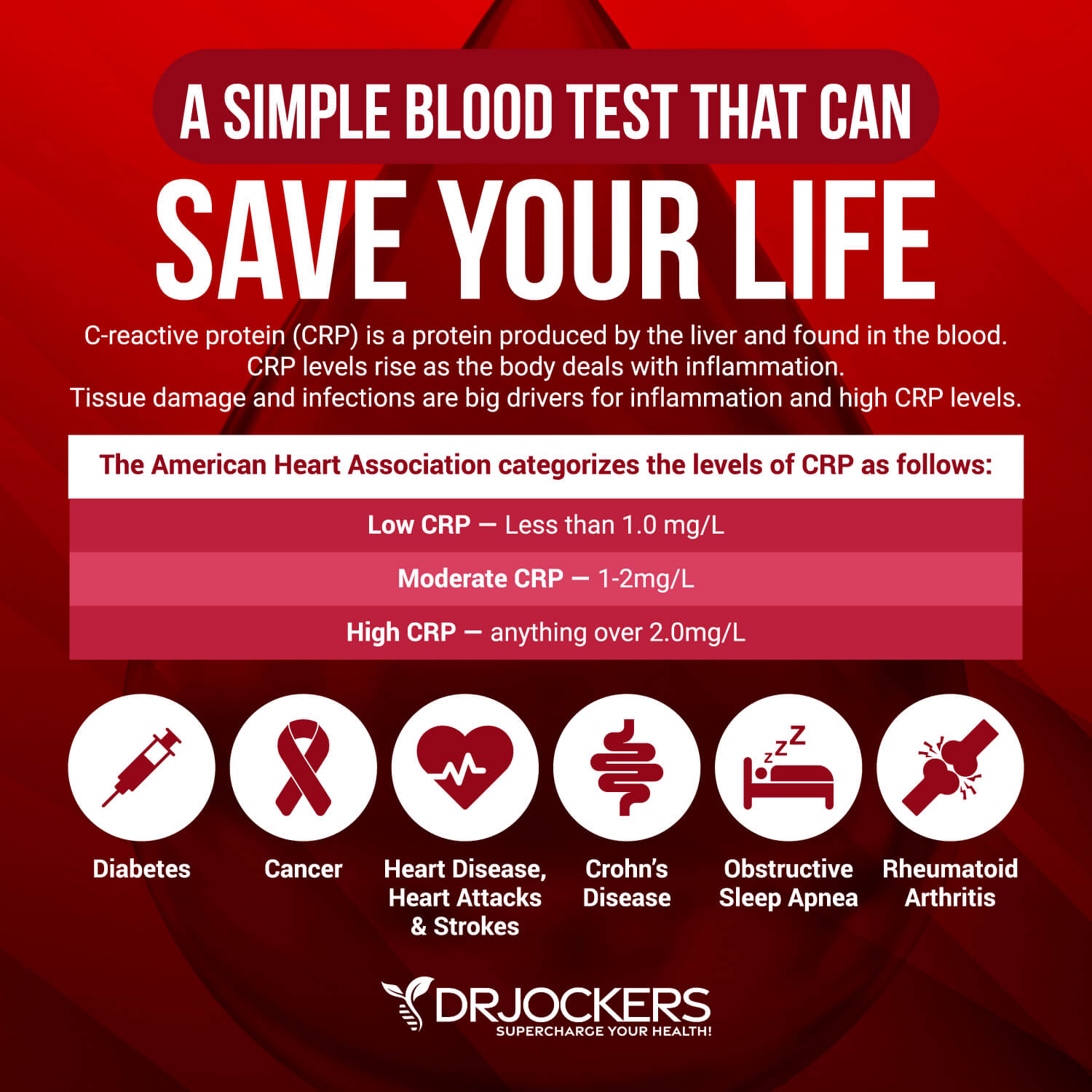
Insulin Resistance
Insulin resistance is another risk factor for erectile dysfunction, so I recommend testing for it (7, 8, 9).
Blood sugar imbalances may increase your risk of inflammation. Fasting insulin can recognize elevated blood sugar levels and can detect inflammation, insulin resistance, blood sugar issues, and diabetes. The clinical range for fasting insulin is 2.6 – 24.9 uIU/ml and the optimal range is 1.0 – 5.0 uIU/ml.
Hemoglobin A1C (HbA1c) gives the average amount of glucose in your blood or blood sugar over the past 3 months making it one of the top tests for inflammation and diabetes. The clinical range is between 4.8 and 5.6 while the optimal range is 4.5 – 5.2.
Your lipid profile may be another indication of inflammation and related issues, including cancer risk. Having a balanced ratio of LDL to HDL and triglycerides to HDL is essential for your health. Ideally, we are looking for an LDL: HDL ratio: 3:1 or less, 2:1 being optimal. For triglycerides, we are looking for an HDL ratio: 2:1 or less, 1:1 being optimal. Higher rates may indicate insulin resistance and inflammation. Optimal levels:
- VLDL cholesterol: The ideal range is 5 to 30 mg/dl.
- HDL cholesterol: The ideal range is 55 to 80. Levels above 100 can indicate chronic inflammation or active infection in the body.
- Triglycerides: The ideal range is 40 to 80.
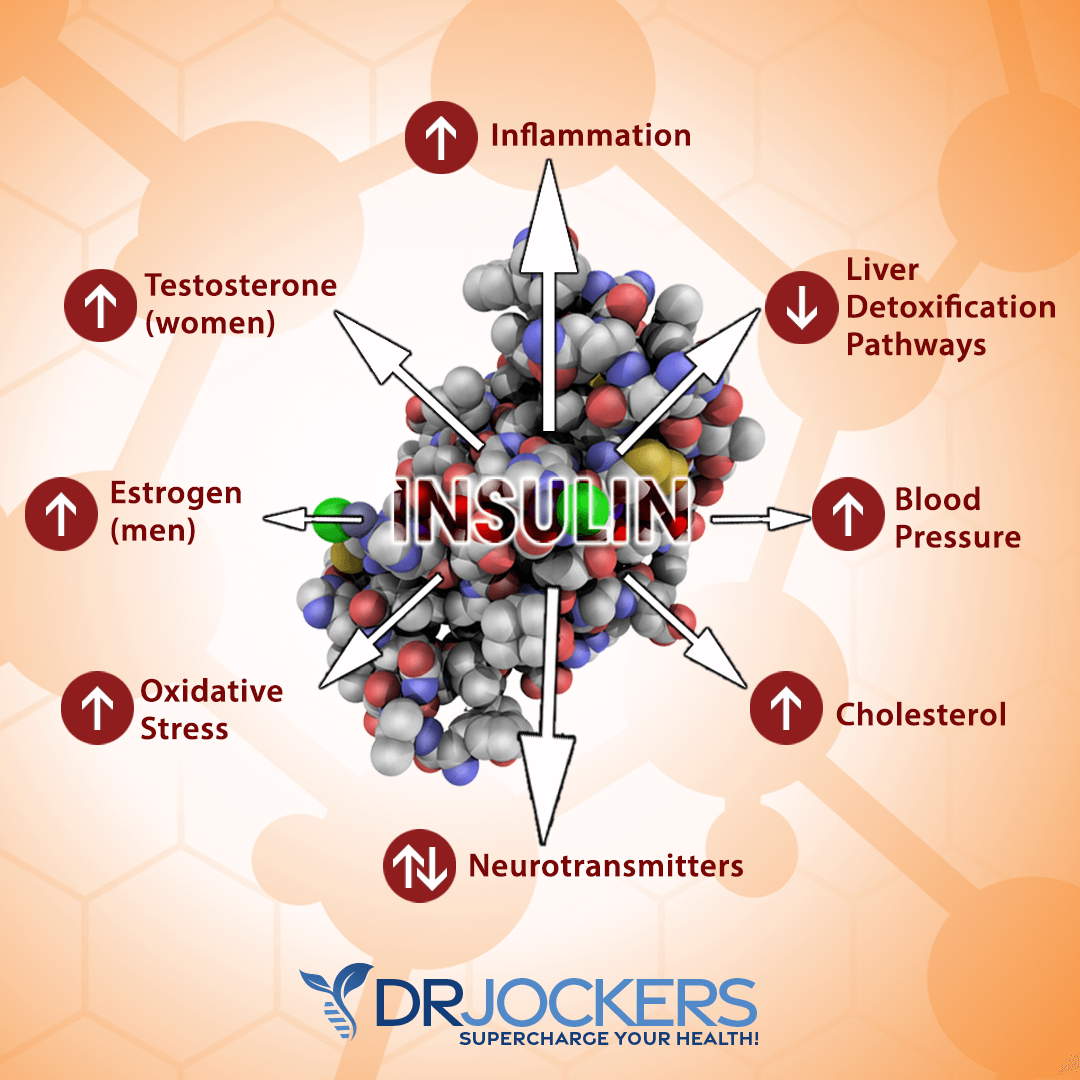
Vitamin D & Plasma Zinc
Vitamin D deficiency, high levels of zinc, low levels of copper, or a poor zinc-copper ratio may also increase your risk of erectile dysfunction, so I recommend testing for these markers.
Vitamin D3 is an important vitamin that most of our population is deficient in. Poor levels may indicate inflammation. Optimal levels of vitamin D3 (25-OH) are between 50-100 ng/mL.
Zinc and copper compete against each other as antagonists to regulate physiological pathways. A proper balance between the two is essential for maintaining good health. I recommend checking your plasma zinc and serum copper levels and their balance. The proper zinc-copper ratio should be 1:8, the normal range for zinc is 90 – 135µg/dL, and the serum-copper ratio should be between 1 and 1.2.
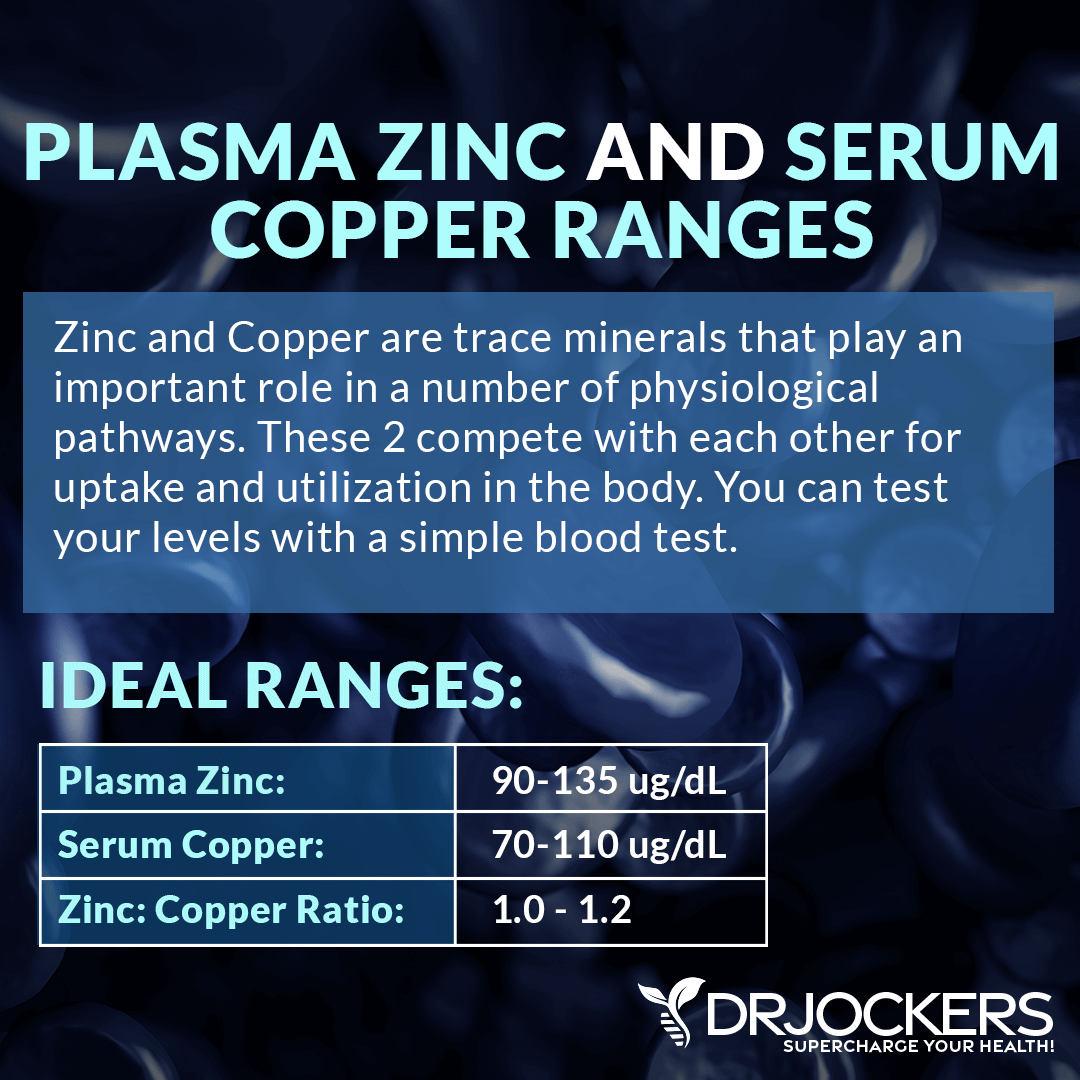
Liver Enzymes
Liver enzyme levels may also indicate inflammation. They may also indicate liver, gallbladder, bile, or kidney issues. Alkaline phosphatase is a liver enzyme that is made by the mucosal cells that line the bile system of the liver and help normal bile flow. Elevated levels (over 95) may indicate inflammation and liver and gallbladder problems.
Alanine aminotransferase (AST) is a liver enzyme. Elevated levels may indicate inflammation. Normal levels are between 10 and 26 IU/L. Aspartate transaminase (ALT) is an enzyme present in the liver that spills out during times of increased liver stress. Elevated levels may indicate inflammation Normal levels are between 10 and 26 IU/L.
Gamma-Glutamyl Transpeptidase (GGT) is an enzyme in the liver, pancreas, and kidneys. Elevated levels may indicate inflammation and liver disease, usually due to alcoholism and/or sluggish gallbladder or gallstone obstruction. Normal levels are between 10 and 26 IU/L. Levels lower than 10 IU/L can be an indication of a vitamin B6 deficiency.
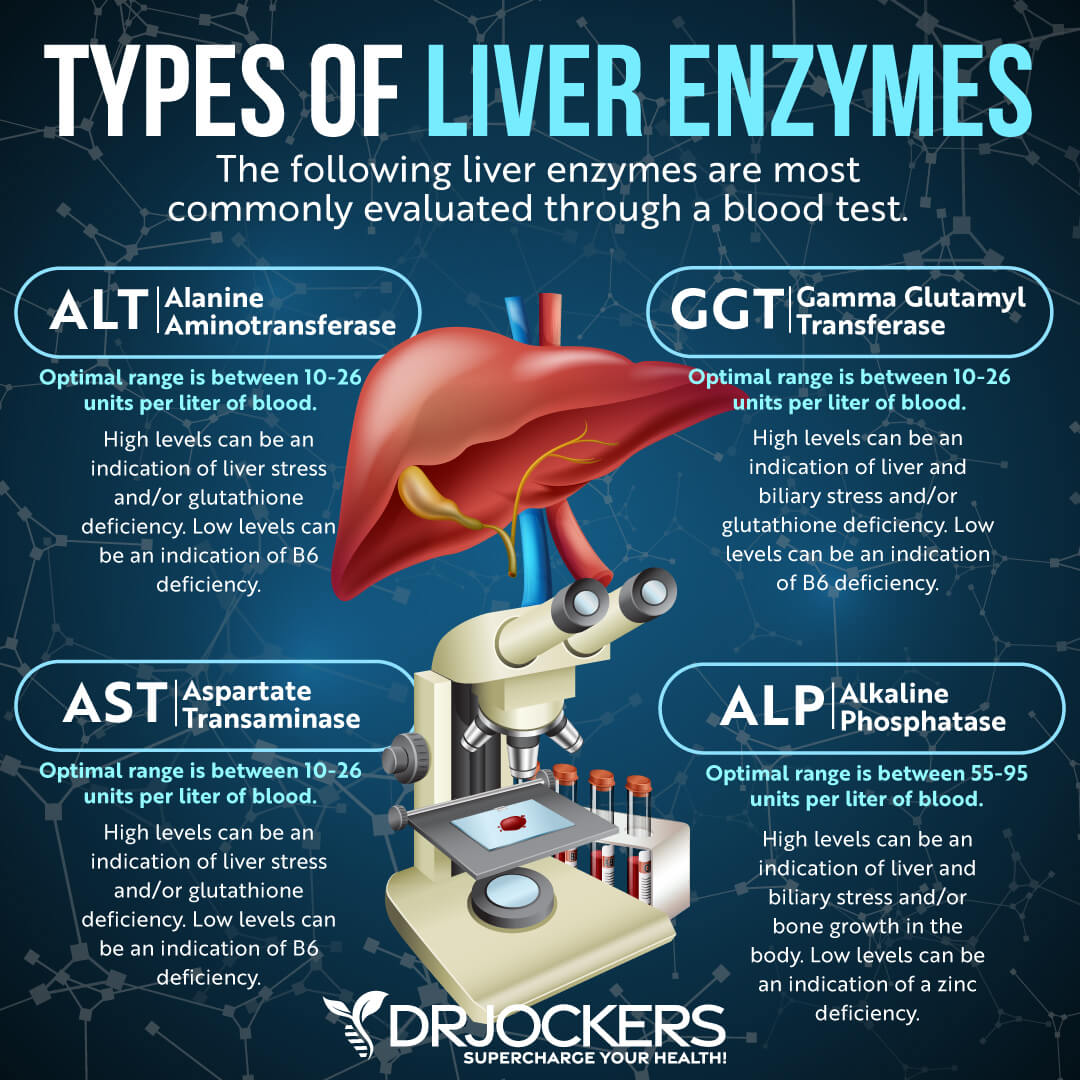
Natural Support Strategies
There are several natural support strategies for erectile dysfunction and improved health. Here is what I recommend:
Eat an Anti-Inflammatory Nutrition Plan
A 2018 study published in the Journal of Sexual Medicine found that following an antioxidant-rich, anti-inflammatory diet may be beneficial for erectile dysfunction (34). Remove inflammatory foods, such as refined oils, refined sugar, artificial ingredients, deep-fried foods, junk food, and highly processed foods. Choose organic food whenever possible.
Follow an anti-inflammatory, antioxidant-rich, nutrient-dense diet with a lot of greens, vegetables, sprouts, herbs, spices, low-glycemic index fruits, mushrooms, fermented foods, grass-fed beef, pasture-raised poultry and eggs, wild-caught fish and seafood, and wild game.
I recommend following a high-protein diet with lots of healthy fats. Eat plenty of berries and avocadoes for their libido-enhancing properties. Cacao and dark chocolate improved dopamine which is critical for sexual function. Seafood, especially oysters, is a great source of zinc, and wild-caught salmon and other wild-caught fish help to boost your omega-3 fatty acid levels. Grass-fed beef is a great source of protein, iron, vitamin B12, and carnitine. Cucumbers and celery are fantastic for electrolytes and hydration.
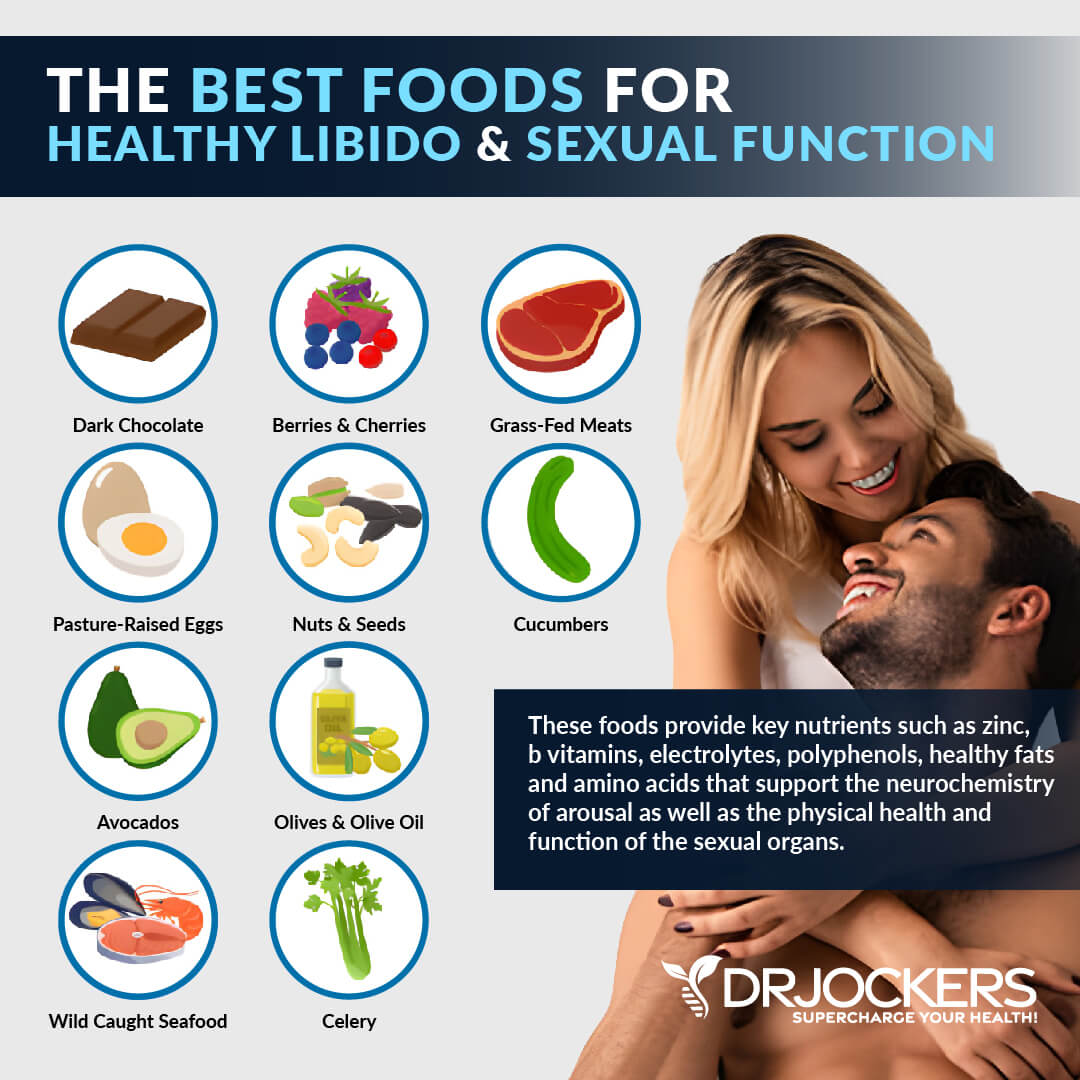
Intermittent Fasting
Intermittent fasting is a way of eating that cycles between periods of not eating (fasting) and periods reserved for meals (feasting) within one day. Intermittent fasting may offer many health benefits, including reduced inflammation, better insulin sensitivity, improved cellular repair, and overall better health. Insulin resistance may also improve sexual function in men. According to a 2020 study published in Urology, intermittent fasting combined with an organic whole-foods diet may improve erectile dysfunction (35).
If you are new to intermittent fasting, the easiest way to start is with the Simple Fast. This method involves a 12-hour fast, including your overnight sleep. You simply stop eating after dinner and don’t eat until breakfast, 12 hours later, in the morning.
You can gradually increase your fasting window until you find what works best for your body. Most people feel their best using the 16:8 method (16 hours fasting and 8 hours for your meals), but you may find that fasting for a somewhat longer or shorter period works better for you. To learn more about intermittent fasting, I recommend reading this article.
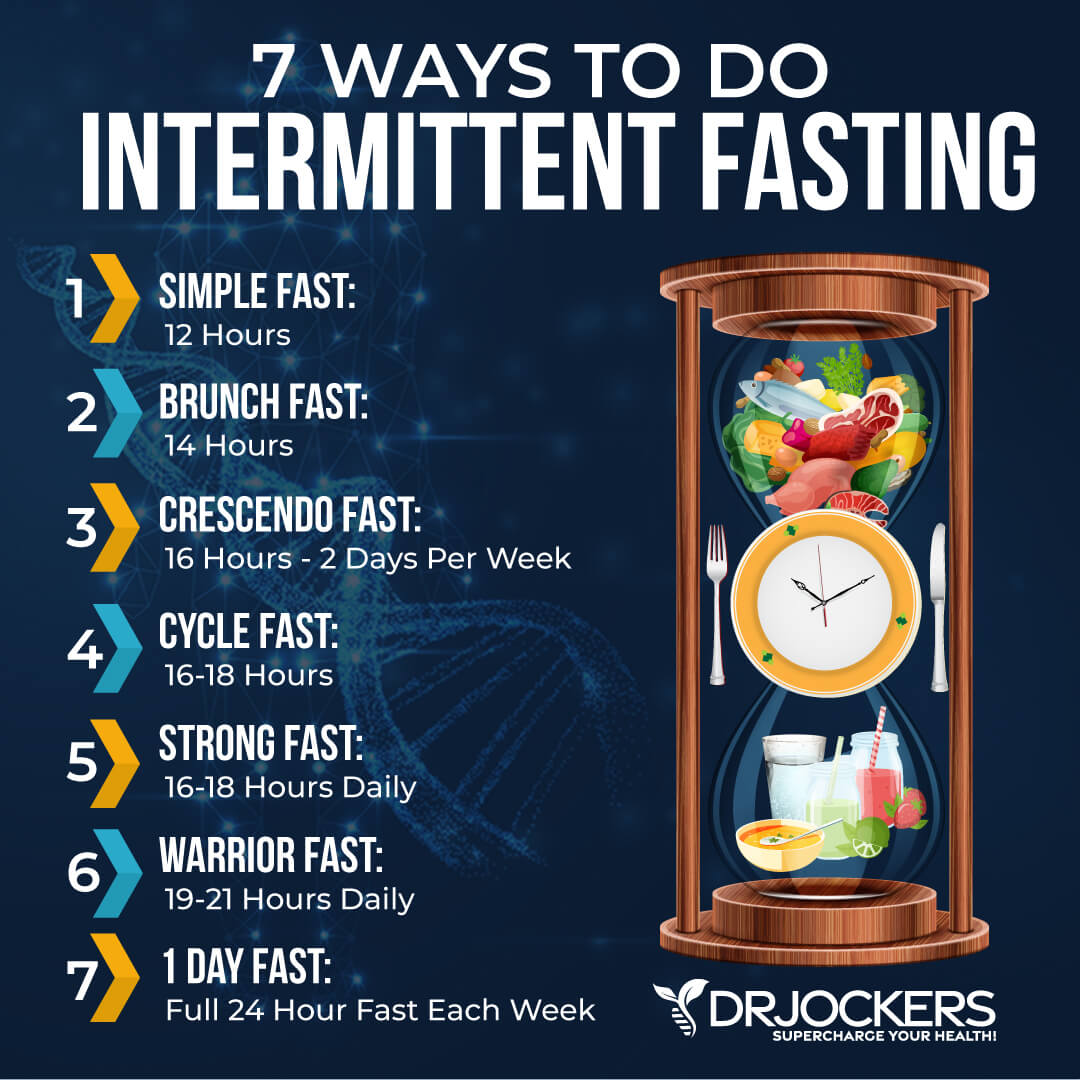
Reduce Stress & Improve Sleep Quality
Chronic stress and poor sleep can increase the risk of erectile dysfunction (11, 12,13). Taking care of your body by reducing stress and improving sleep quality is critical. Reduce stressful situations and people that bring stress into your life as much as possible.
Learn to respond to stress better through mindset shifts, focusing on the positive, gratitude, positive affirmations, breathwork, and improving communication. Lower your stress levels and improve relaxation by practicing meditation, breathwork, visualization, guided relaxation, journaling, gratitude, and prayer.
Aim to get 7 to 9 hours of restorative sleep at night. Prepare your body and mind for bed by avoiding sugar, caffeine, alcohol, and electronics several hours before bedtime and developing a relaxing evening routine.
Choose activities that calm your mind and relax your body, such as taking a relaxing bath, sipping on herbal tea, reading, listening to calming music, coloring, crossword puzzles, journaling, prayer, and gratitude. Ensure that your bedroom is a safe sanctuary with a supportive bed, bedding, and pillows, calming colors, dim lights, and calming essential oils. Blackout curtains and sleep masks can help you fall asleep more easily.

Regular Movement and Strength Training
Regular movement and exercise are, of course, important for your overall health. It turns out, it’s critical for erectile function as well. A 2018 study published in the Journal of Education and Health Promotion found that physical fitness is beneficial for sexual functioning (36). I recommend moving your body regularly and strength training.
Stay active throughout the day by stretching regularly, taking a stroll, walking or biking instead of driving if possible, taking the stairs, dancing to your favorite song, walking your dog, playing with your kids, or trying a few yoga moves.
Strength and resistance training is particularly important for healthy testosterone levels. By balancing testosterone, it may help to lower the risk of erectile dysfunction as well. You may incorporate weightlifting, bodyweight exercises, TRX suspension trainers, and kettlebell workouts are great options. High-intensity interval training (HIIT) combines the benefits of cardiovascular fitness and strength and resistance training.
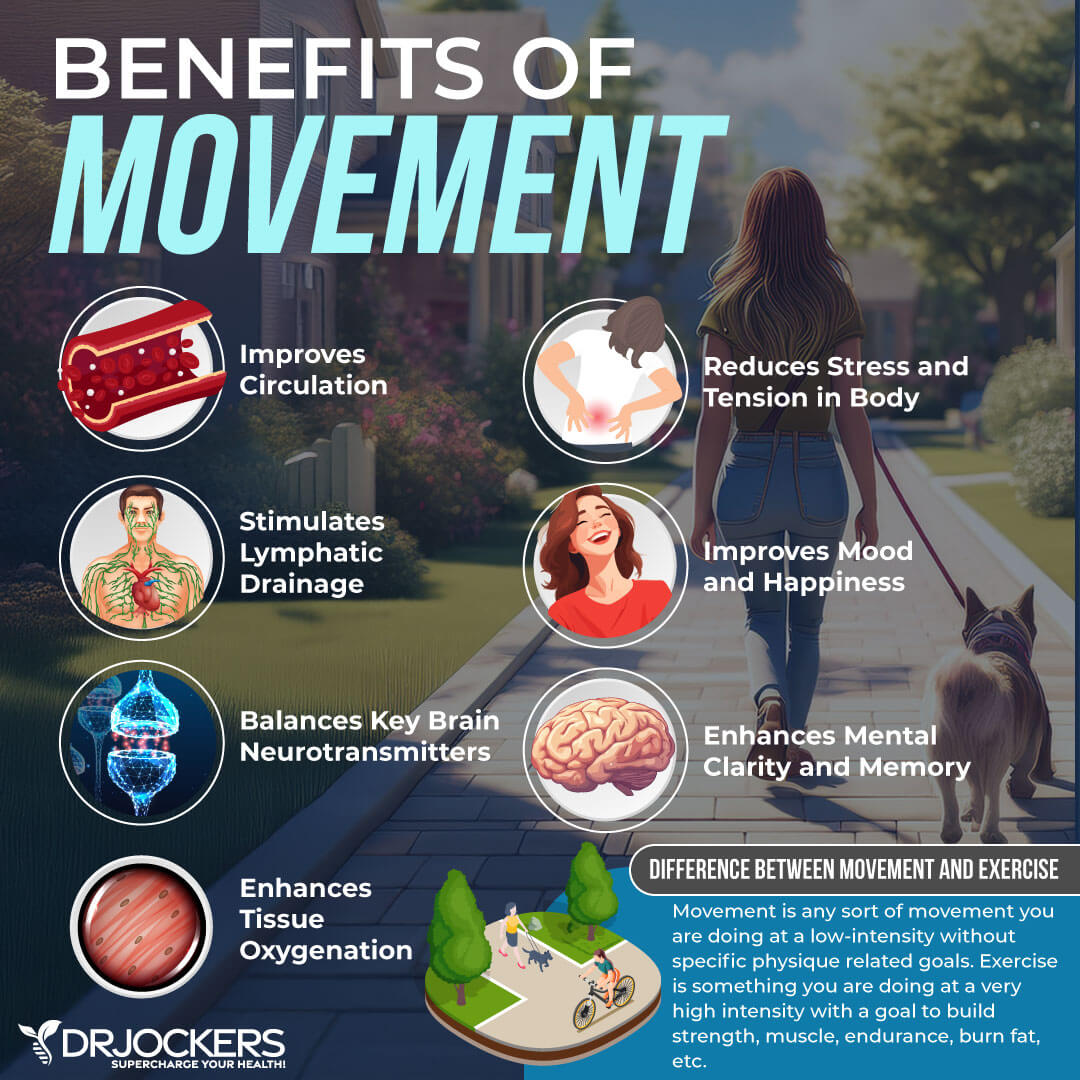
Improve Detoxification Pathways
Viral infections, gut infections, and toxin overload can contribute to erectile dysfunction (14, 15, 16, 17, 18, 19, 21, 22, 23, 24). Improving your detoxification pathways may help. Follow an antioxidant-rich, anti-inflammatory, nutrient-dense diet to help your body’s ability to detoxify and cleanse itself.
Hydrate your body well with lots of purified water, green juices and smoothies, herbal tea, and hydrating vegetables to support detoxification through sweating and urine. Exercise regularly and use an infrared sauna several times a week to support detoxification through sweating. Practice rebounding and dry skin brushing to support your lymphatic pathways and lymphatic detoxification.
Support your gut flora and healthy elimination with high-quality probiotics. Use activated charcoal to remove toxins from your intestinal tract. Support your two major detoxifying organs, your kidneys and liver, and support their healthy functioning with kidney and liver support supplements.
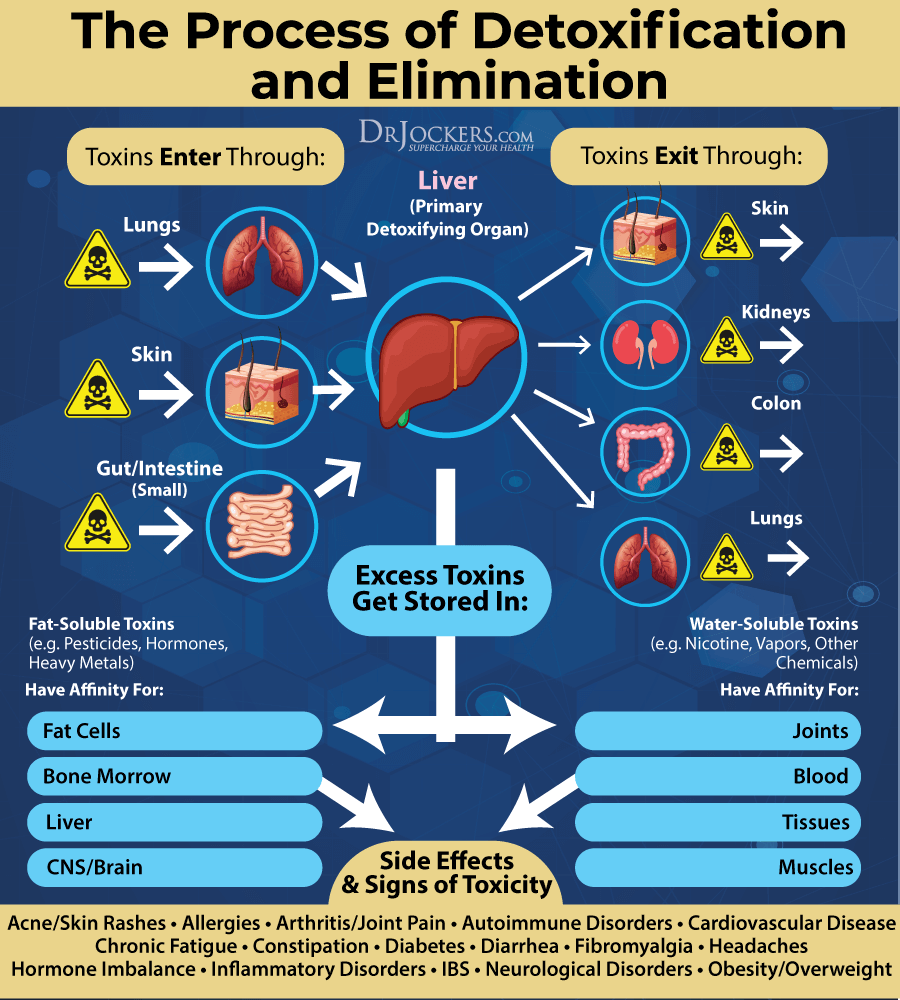
Reduce Toxic and Pathogen Load and Improve Microbiome
Since gut dysbiosis, infections, and toxin overload are major risk factors for erectile dysfunction, it’s critical to reduce toxin and pathogen load and improve your microbiome health (14, 15, 16, 17, 18, 19, 21, 22, 23, 24). Avoid pesticide and herbicide exposure by buying organic produce and food. Reduce chemical exposure by choosing organic, natural, and homemade alternatives instead of conventional cleaning, hygiene, body, and beauty products.
Drink filtered and purified water instead of tap water. Avoid smoking and second-hand smoke. Use a high-quality air filtration system to reduce toxins and allergens in your indoor air. Reduce the use of plastic, especially BPA, and choose alternatives made of glass, bamboo, wood, stainless steel, and organic cotton.
Follow a gut-friendly, anti-inflammatory nutrition plan. You may benefit from prebiotic-rich foods, such as Jerusalem artichokes, jicama, asparagus, yacon roots, garlic, onion, leeks, and apples. However, if you are on a low-FODMAP diet, the Carnivore Diet, or feel irritated from too many prebiotic fibers, reduce your load or avoid them. Eat plenty of probiotic-rich foods, such as sauerkraut, fermented vegetables and herbs, coconut kefir, coconut yogurt, and kombucha.
Take a daily high-quality probiotic supplement. Improve your gut microbiome with postbiotics, such as apple cider vinegar, kombucha, coconut kefir, and fermented vegetables, or take postbiotic supplements. If you are dealing with chronic infections, working with a functional medicine doctor can help to offer a personalized plan with herbs and supplements to improve your specific issues.
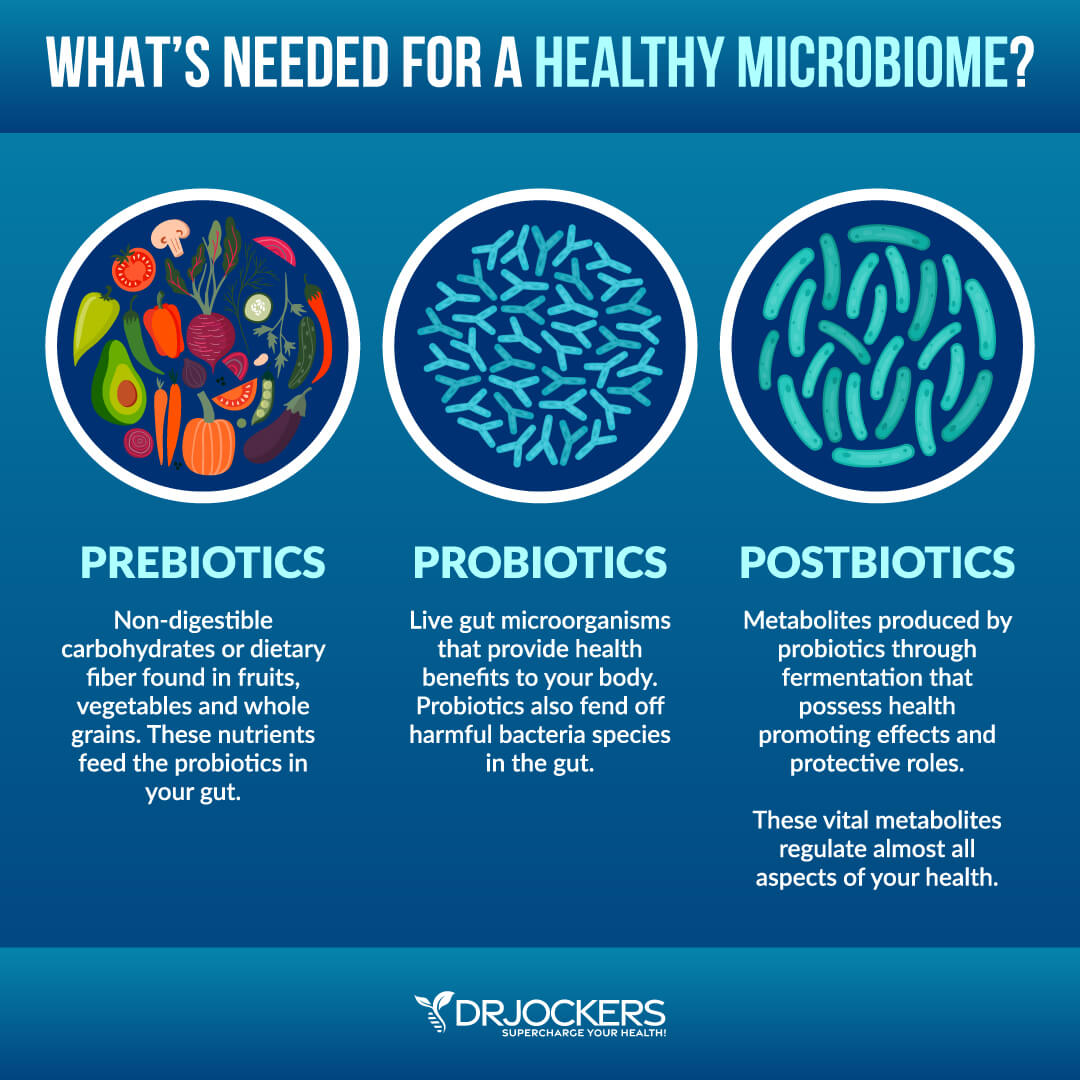
Optimize Vitamin D Levels
Deficiencies in vitamin D may increase your risk of erectile dysfunction (25, 26). To optimize your vitamin D levels, I recommend spending time out in the sun and eating vitamin D-rich fatty fish, egg yolks, and beef liver. However, sunshine and food are not enough. I recommend daily supplementation with vitamin D3.
Pairing vitamin D3 with vitamin K2 helps improve calcium absorption and inflammation control. I recommend taking a vitamin D3 supplement with at least 3,000-5,000 IU’s of vitamin D3 and at least 90 mcg of vitamin K2. I highly recommend Vitamin D3/K2 Power. Both of these supplements support your immune, skin, cardiovascular, and bone health.
Typically, taking 1,000 IU per 25 lbs. of body weight will help you get your levels into a healthy range. You want to test your vitamin D levels at least 1-2 times each year and get your levels between 50-100 ng/ml. It has been hypothesized that a therapeutic level for major health conditions is going to be between 70-100 ng/ml.
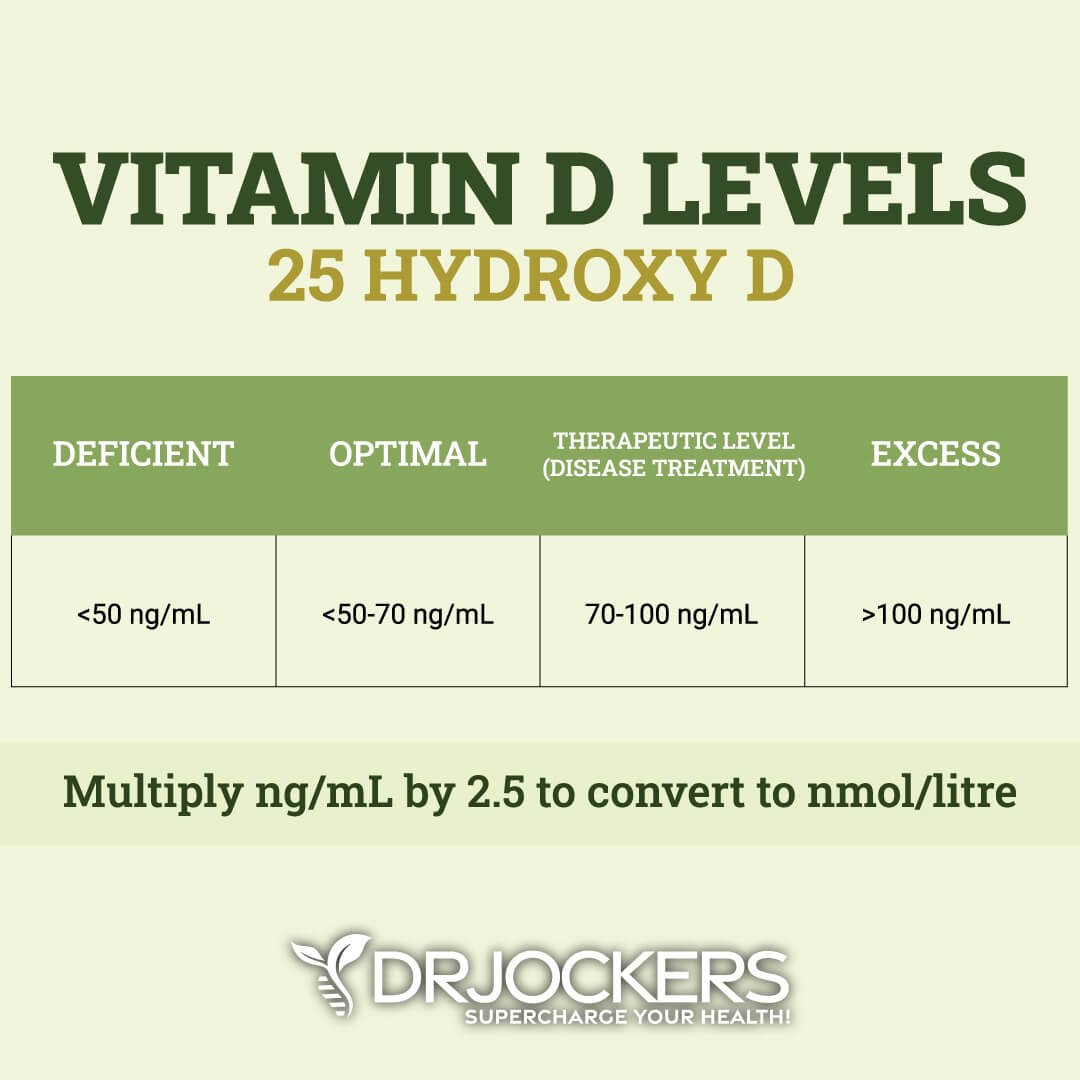
Optimize Zinc, Omega-3 Fats, Magnesium, and B Vitamin Levels
Deficiencies in zinc, omega-3 fatty acids, magnesium, and B vitamins may also increase your risk of erectile dysfunction (27, 28,29, 30). Optimizing your levels of these nutrients is critical for your sexual health.
I recommend that you consume plenty of zinc-rich foods, including meat, poultry, and seafood. Additionally, I recommend daily zinc supplementation, such as Zinc Charge.
We test plasma zinc and serum copper levels, and the ideal ratio is roughly 1 to 1.2, meaning you should have equal or slightly higher levels of plasma zinc than you have serum copper. Fortunately, the foods are high in zinc, such as meat, seafood, nuts, and pumpkin seeds, are also very high in copper, so you get both of these together in your diet.
You may improve your Omega-3 levels by consuming foods rich in omega-3 fatty acids, such as wild-caught fish and seafood, algae, hemp seeds, chia seeds, flax seeds, and walnuts. Additionally, I recommend a high-quality fish oil omega-3 supplement, such as ProOmega Curcumin.
To improve magnesium, I recommend Brain Calm Magnesium for energy, brain health, pain relief, bone health, muscle health, joint function, and better sleep. Sleep Deep is great if you want to improve sleep and optimize magnesium. Magnesium Oil Ultra with MSM Tropical Spray is perfect for muscle pain and relaxation.
To improve your B vitamin levels, I recommend B Strong for B vitamin complex and B12 Power. You can benefit from foods rich in B vitamins, such as meat, fish, shellfish, liver, kidney, eggs, and dark leafy greens.
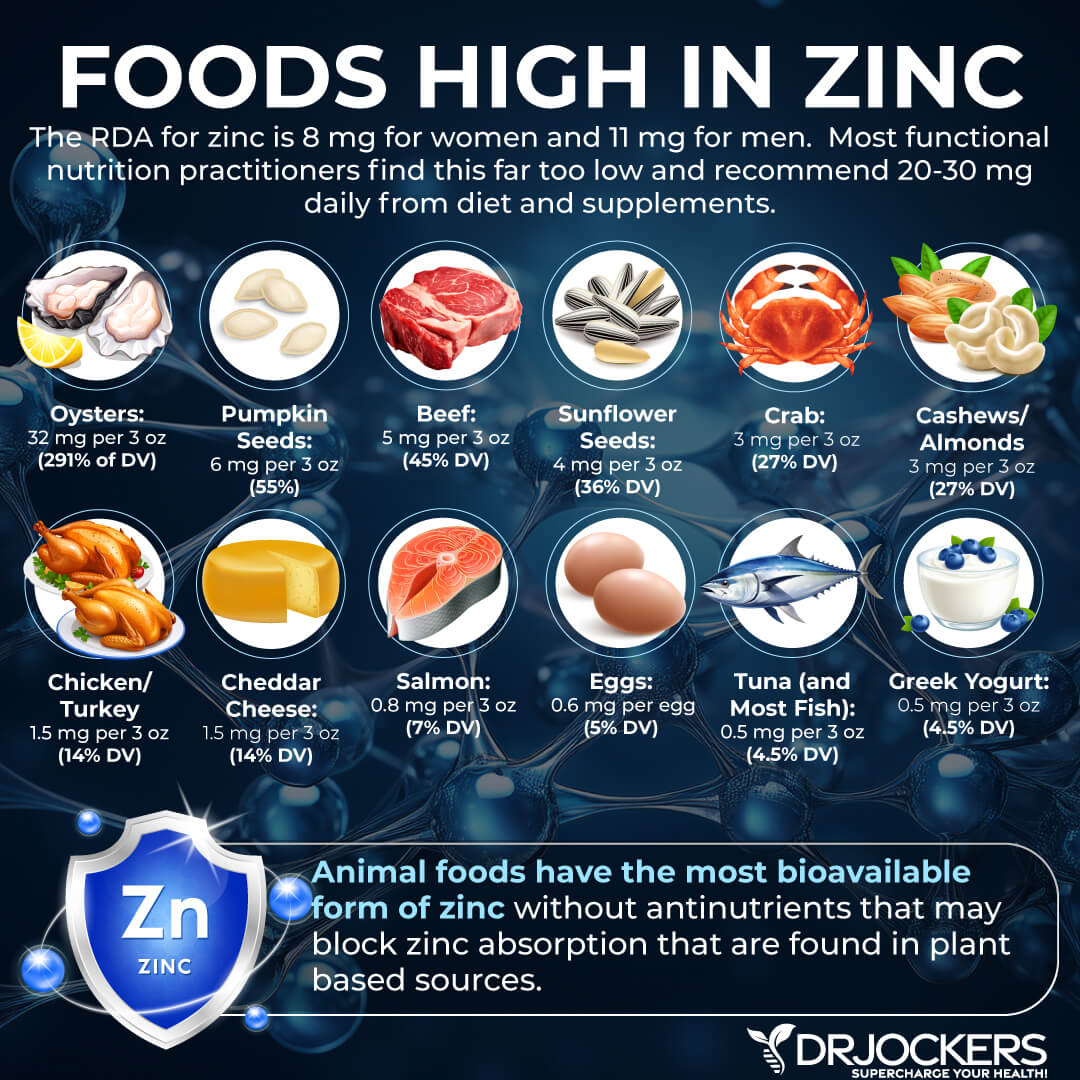
Consider Using Acupuncture
Acupuncture is a form of Traditional Chinese Medicine (TCM) that uses small, fine needles inserted into specific meridian points to regain balance and flow within the body and, as a result, reduce health issues and regain health.
A 2019 systematic review and meta-analysis published in the World Journal of Men’s Health has found that acupuncture may be beneficial for erectile dysfunction (37). You may also benefit from acupuncture therapy for erectile dysfunction.

Consider Herbs That Support Testosterone and Erectile Function
You may also consider some herbs that support testosterone and erectile function. Here is what I recommend.
Gingko Biloba
A 1998 study published in the Journal of Sex & Marital Therapy has found that Ginkgo Biloba may help to improve sexual dysfunction caused by antidepressants (38).
Horney Goat Weed
Horny goat weed didn’t get its name on accident. A 2006 study published in the Asian Journal of Andrology has found that horny goat weed can mimic testosterone (39). A 2010 study published in the Journal of Sexual Medicine has found that horny goat weed may improve erectile dysfunction (40).
A 2020 study published in Dose-Response has found that it can also improve hormonal health in men (41). The active ingredient Icariin acts as a phosphodiesterase inhibitor which blocks the effects of an enzyme that restricts blood flow to the penis. This allows for easier and longer lasting erections.
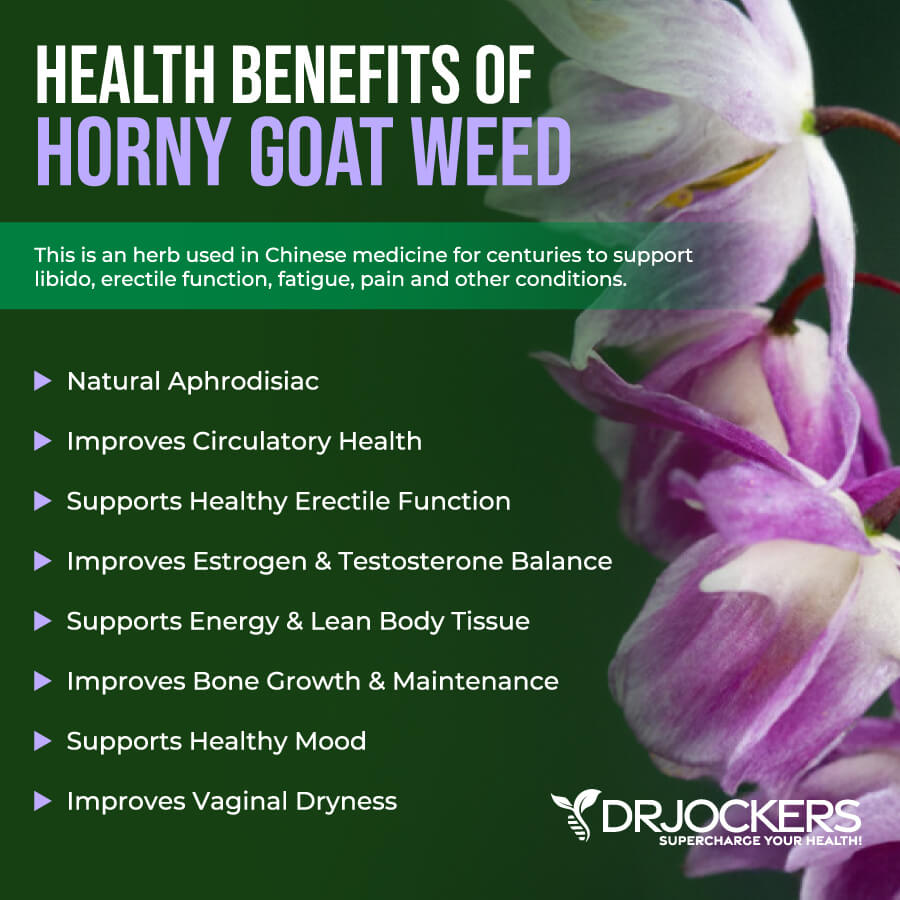
Tribulus
A 2017 prospective, randomized, double-blind, placebo-controlled clinical trial published in Maturitas has found that Tribulus Terrestris may be safe and effective for sexual dysfunction in men (42).
Thanks to the presence of a steroidal saponin compound and secondary metabolite, protodioscin, Tribulus may help to improve testosterone levels, mood and circulatory health in men.
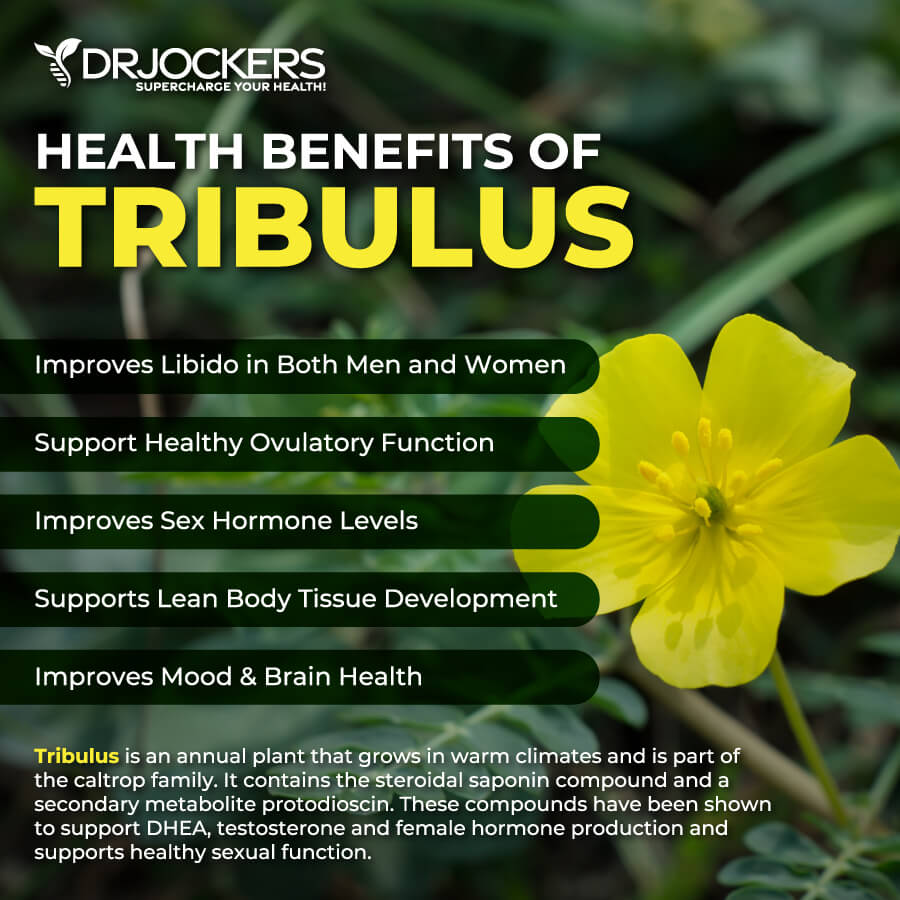
Tonkat Ali
Tongkat Ali is an herbal supplement prepared from the roots of the green shrub Eurycoma longifolia, which is native to Southeast Asia. The plant contains numerous beneficial compounds including flavonoids, alkanoids, antioxidants, and eurycomamones.
A 2017 review published in the Chinese Journal of Natural Medicine has found that Tongkat Ali may support male sexual health (43). 2019 research published in Evidence-Based Complementary and Alternative Medicine has found that Tongkat Ali may improve sexual health, testosterone levels, erectile function, and prostate health in men (44).
Tongkat Ali works by boosting key neurotransmitters in the brain, which are responsible for a host of vital processes, including regulating energy, mood, and physical performance. Athletes love Tongkat Ali, because it helps increase stamina and endurance during physical activity, and afterward, it supports muscle growth, repair, and recovery.
Tongkat Ali keeps the male reproductive system young by increasing the body’s bioavailable testosterone. It works by stimulating the secretion of luteinizing hormones, which in turn, activate the Leydig cells in the testicles to produce testosterone. Tongkat Ali also reduces aromatization, which converts testosterone to estrogen, as well as cortisol, a stress hormone that lowers testosterone.
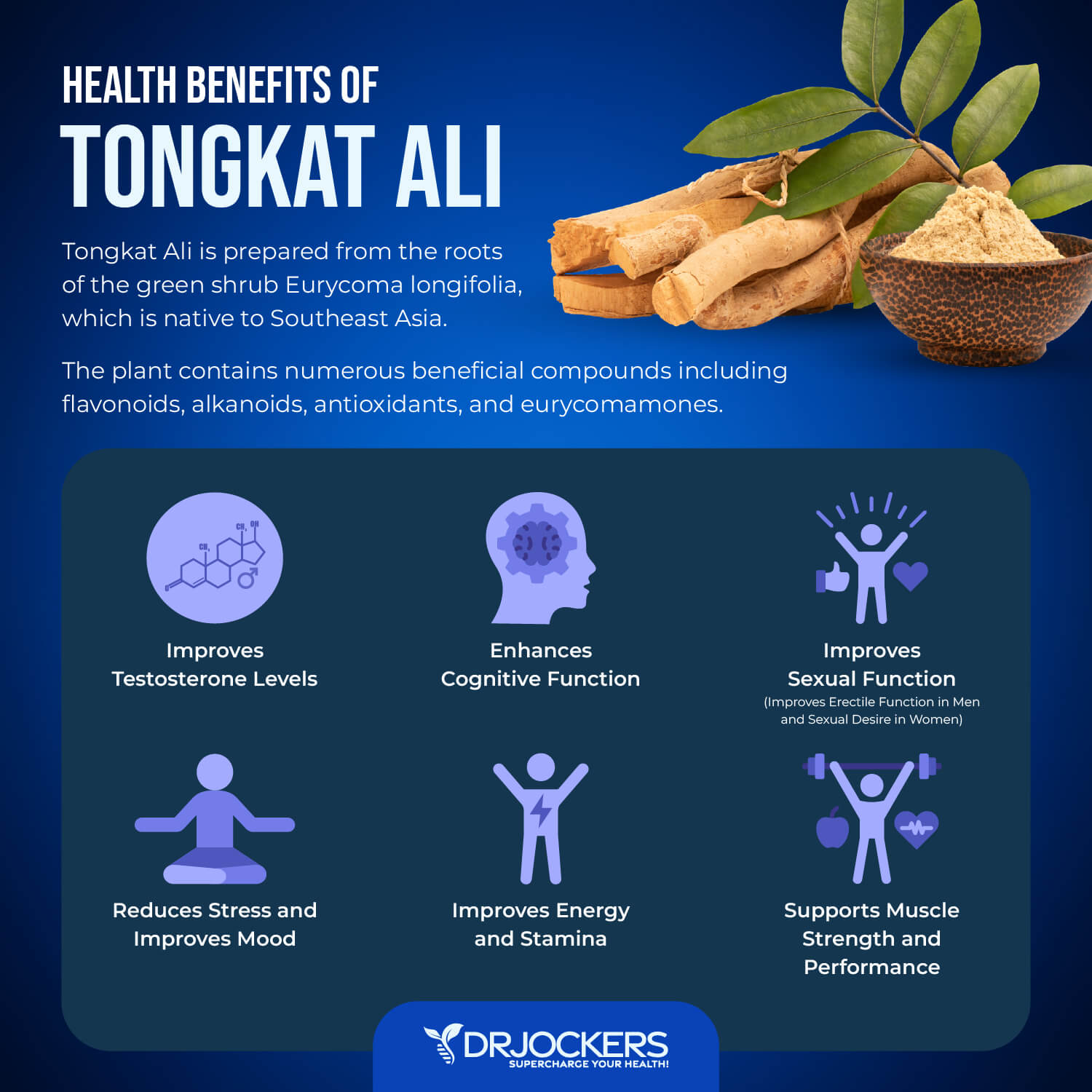
Chrysin
A 2012 animal study published in Andrologia found that chrysin may help to improve male reproductive health (45). A 2003 study published in the Journal of Medicinal Food found that chrysin may help to improve testosterone levels in men (46).
DIM
Diindolylmethane (DIM) may increase free testosterone levels and thus may reduce the risk of erectile dysfunction. A 2016 study published in EPMA Journal found that DIM may be beneficial for men’s health, including prostate, urinary, and penile health (47).
Male Performance
For men, I recommend Male Performance. This blend combines organs, glands, and superfoods designed specifically for men’s performance and vitality. That means bovine and ovine liver, heart, adrenals, prostrate, orchic (testicular), pituitary, and more.
You’ll also get organic cordyceps and fenugreek seeds – both time-tested superfoods for men’s health – 10mg zinc, and 100mcg selenium. Together, this formula delivers powerful support to help men feel energized, youthful, and ready for their best years yet. This supplement helps provide safe support for normal testosterone production, erectile function, and desire.
Final Thoughts
Erectile dysfunction affects about 30 million men in the United States alone. It can be a great source of stress, emotional issues, self-esteem issues, and relationship difficulties. I recommend following my natural strategies for erectile dysfunction to improve your health.
If you want to work with a functional health coach, I recommend this article with tips on how to find a great coach. On our website, we offer long-distance functional health coaching programs. For further support with your health goals, just reach out—our fantastic coaches are here to support your journey.
Inflammation Crushing Ebundle
The Inflammation Crushing Ebundle is designed to help you improve your brain, liver, immune system and discover the healing strategies, foods and recipes to burn fat, reduce inflammation and Thrive in Life!
As a doctor of natural medicine, I have spent the past 20 years studying the best healing strategies and worked with hundreds of coaching clients, helping them overcome chronic health conditions and optimize their overall health.
In our Inflammation Crushing Ebundle, I have put together my very best strategies to reduce inflammation and optimize your healing potential. Take a look at what you will get inside these valuable guides below!






I’m wondering if the same supplements would help a post menopausal woman who has lost sensitivity in the clitoris and vagina? Or do you have other suggestions?